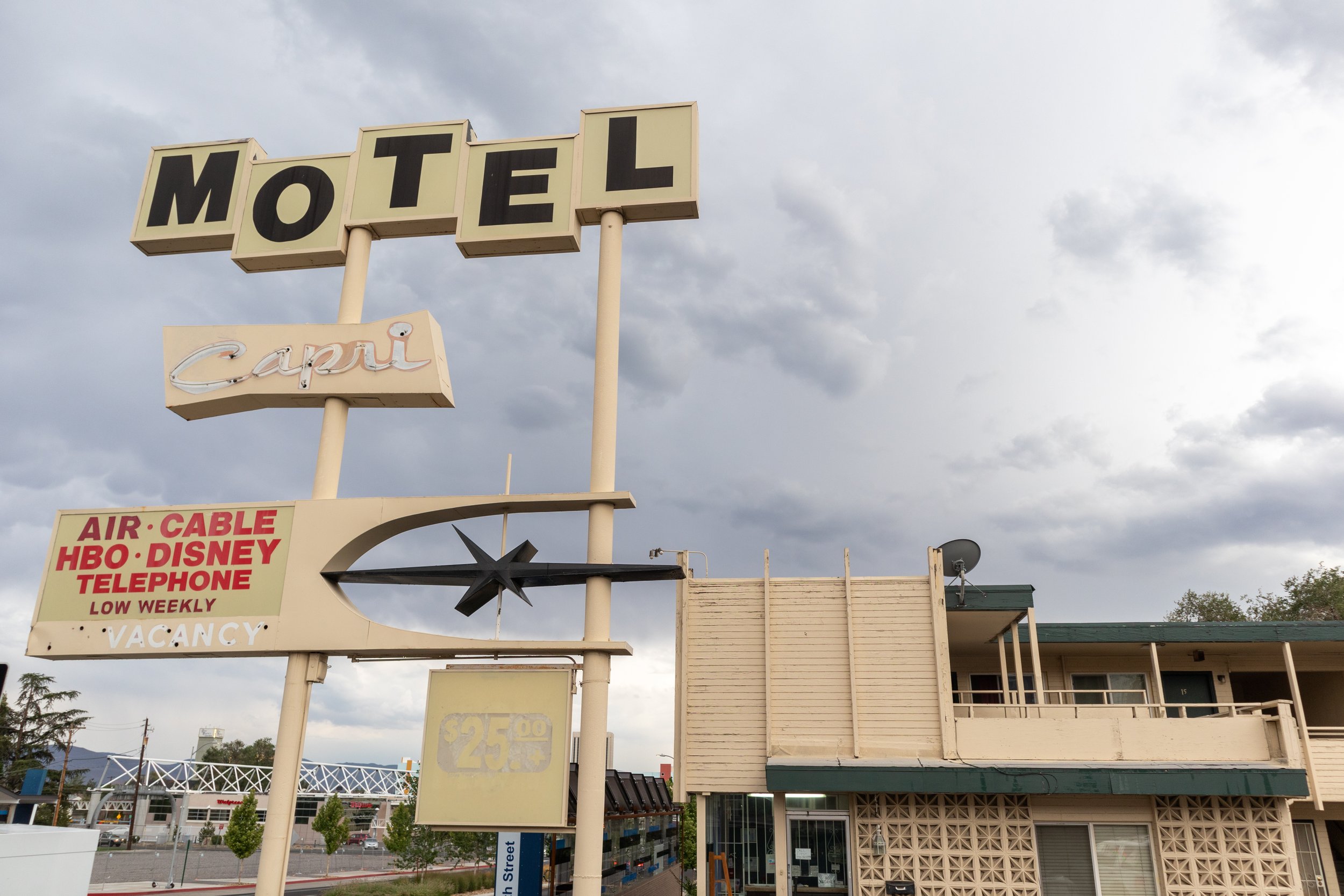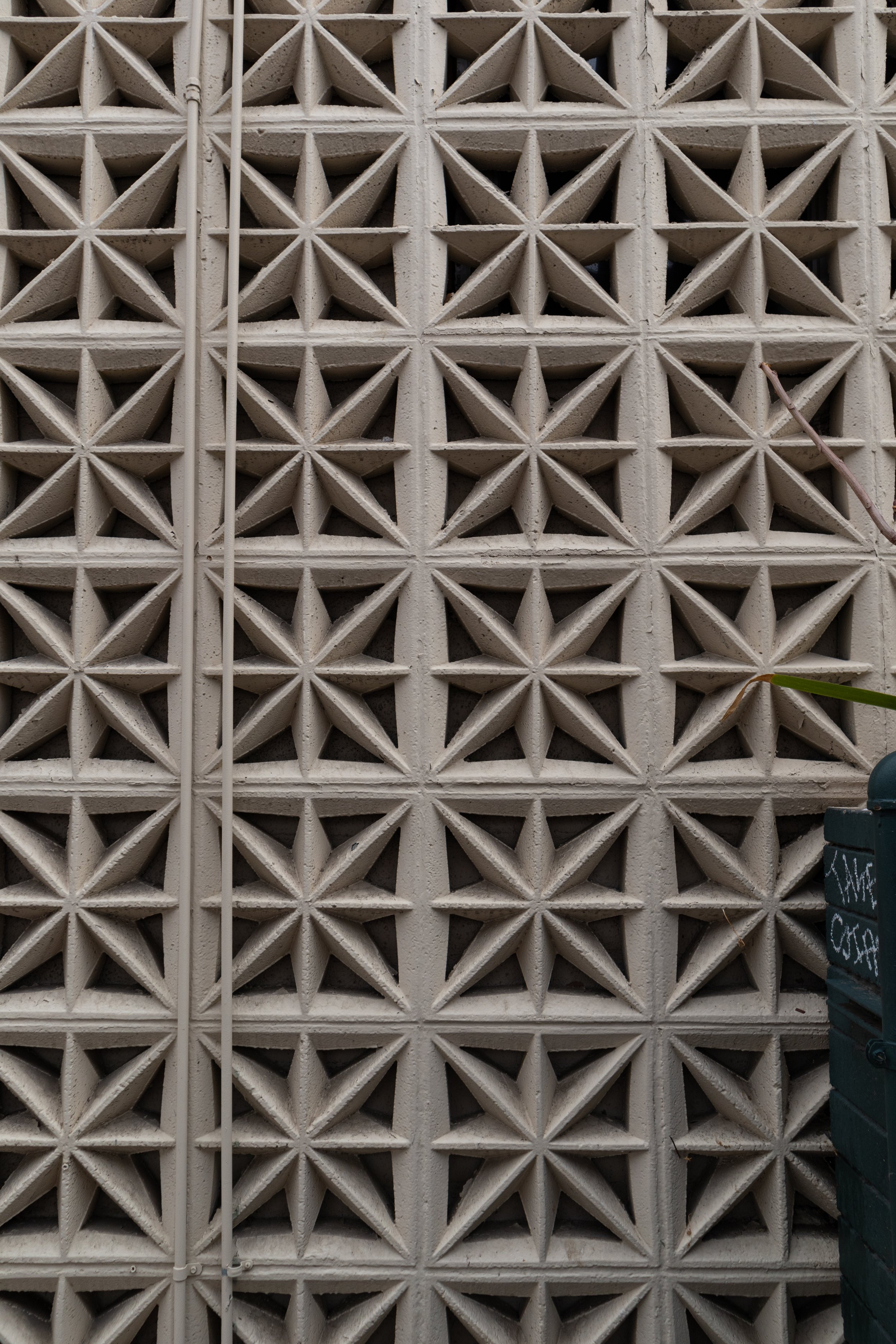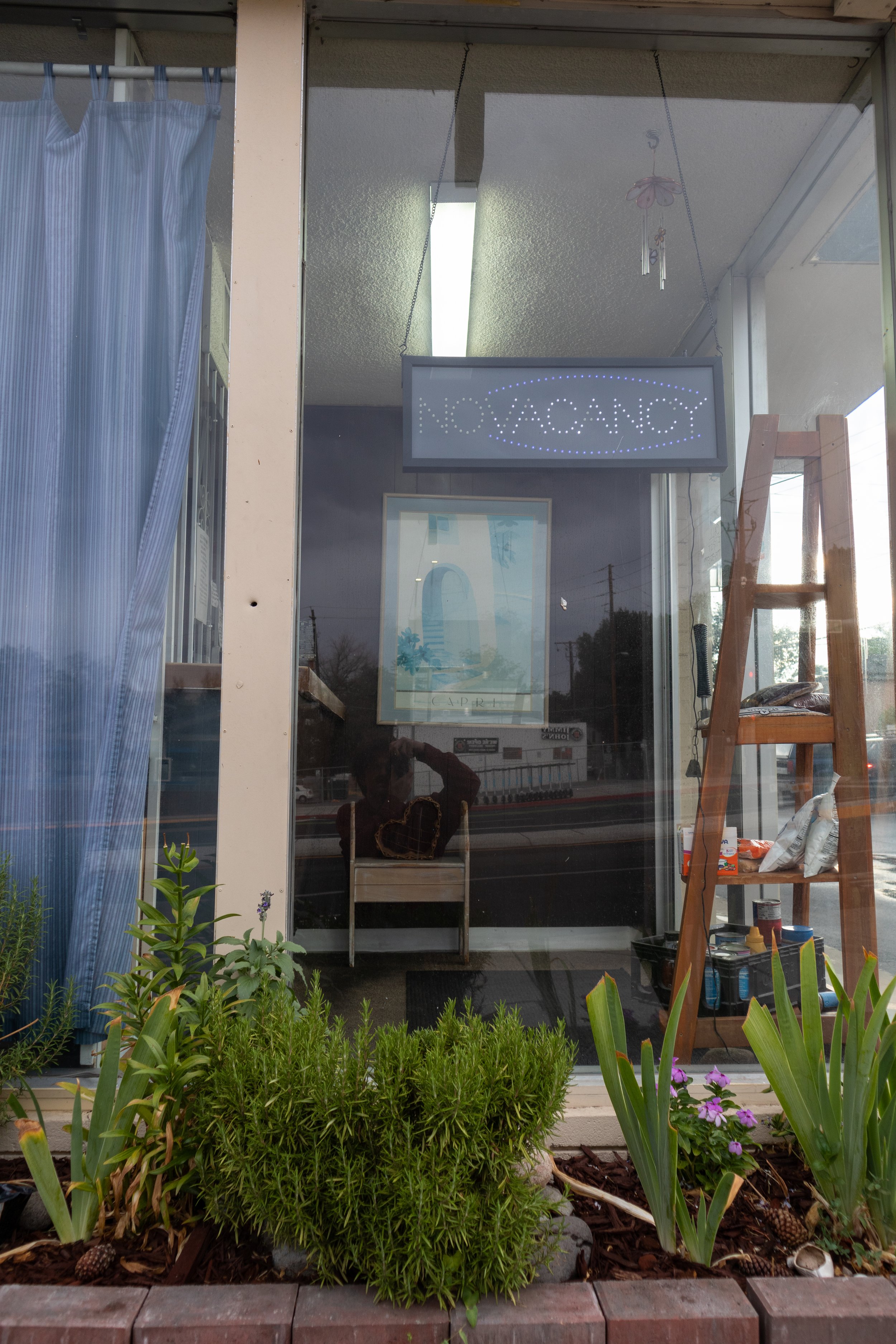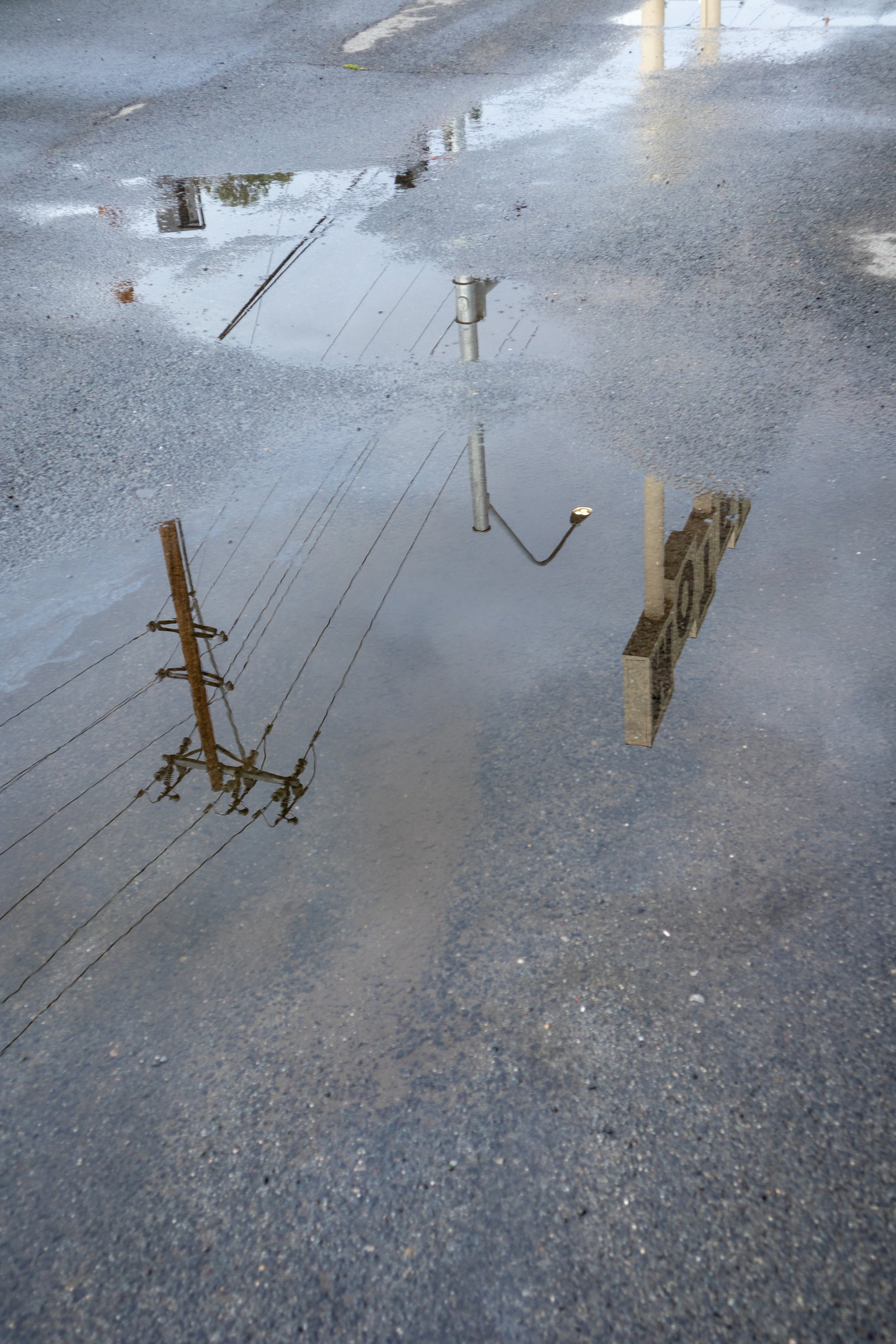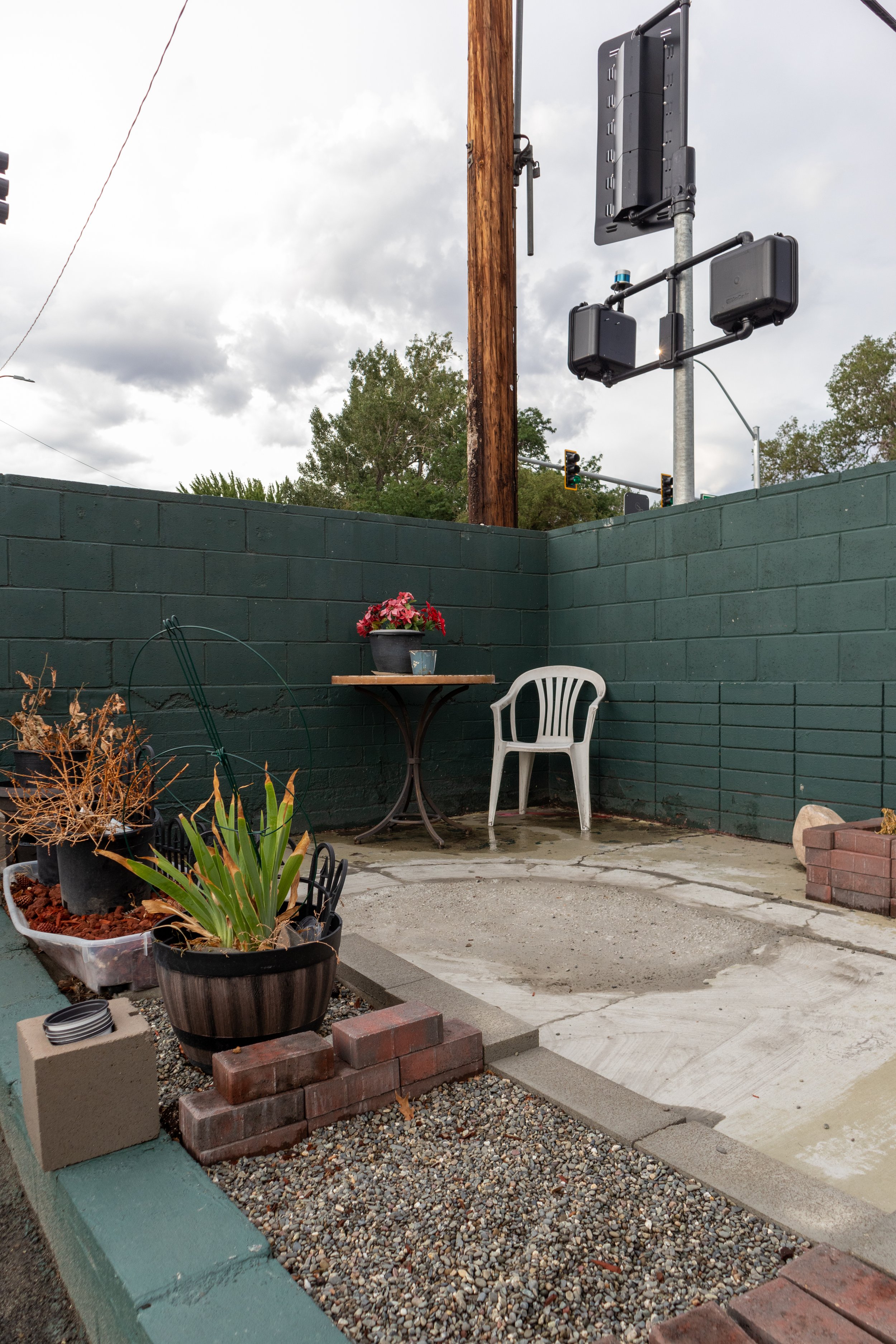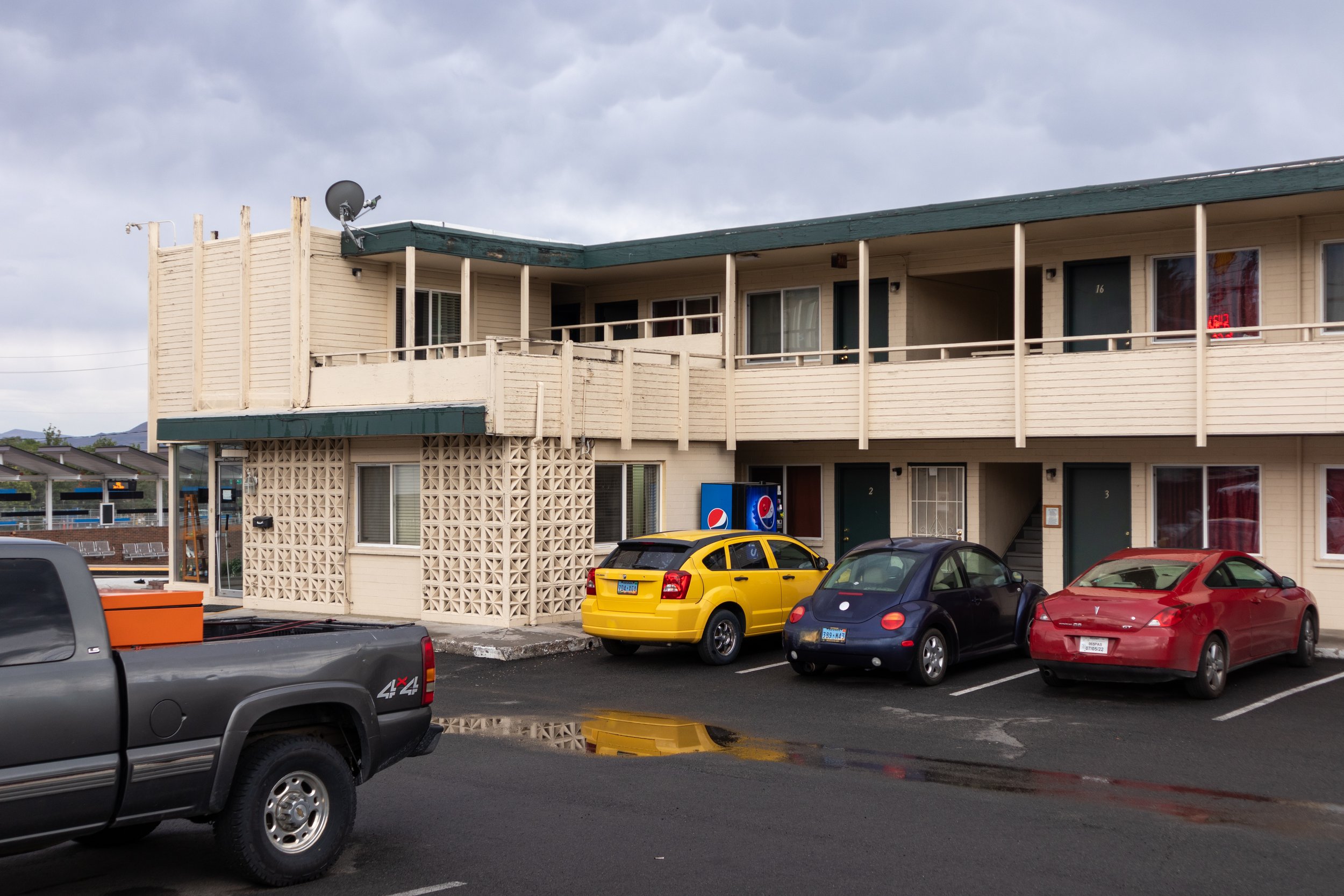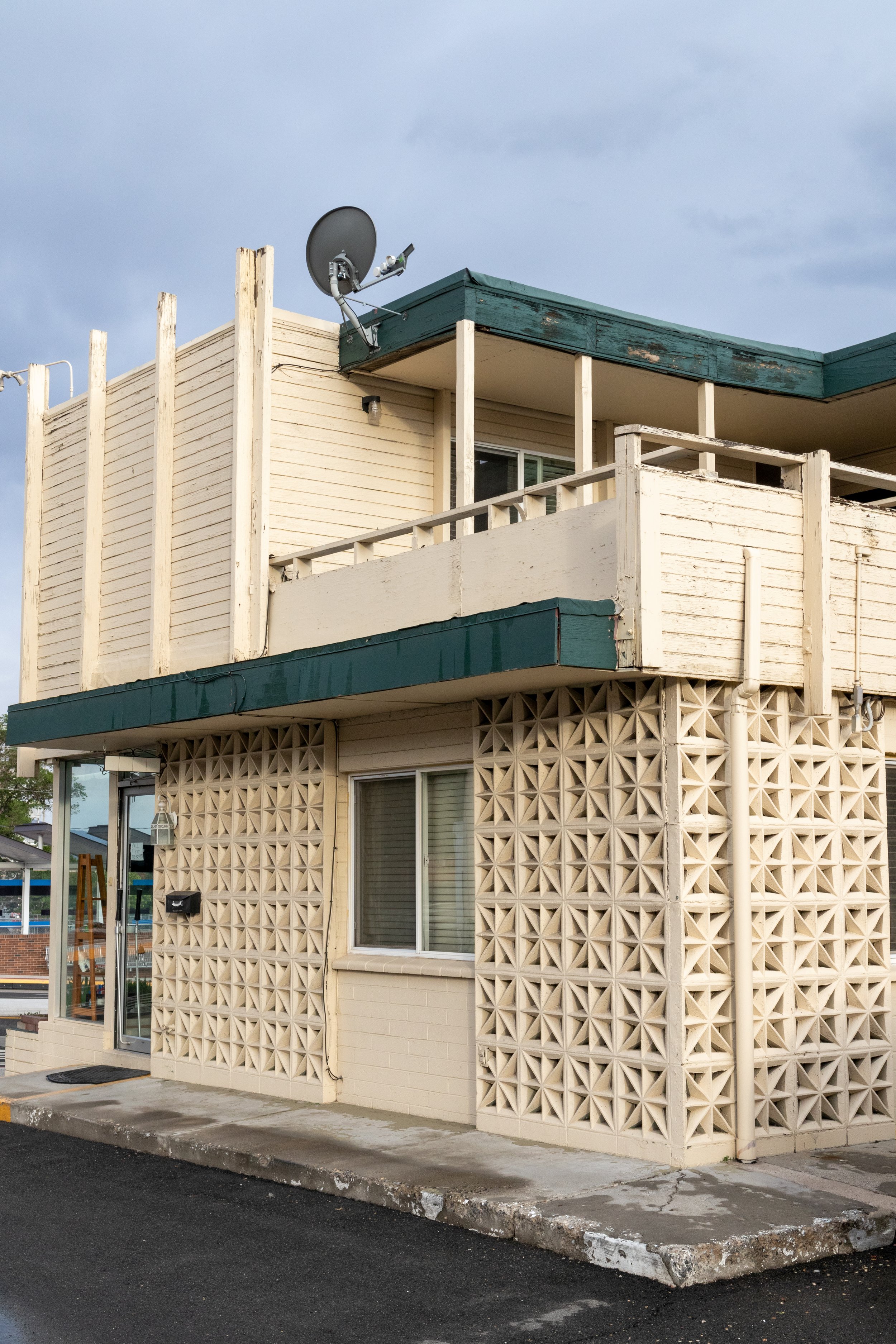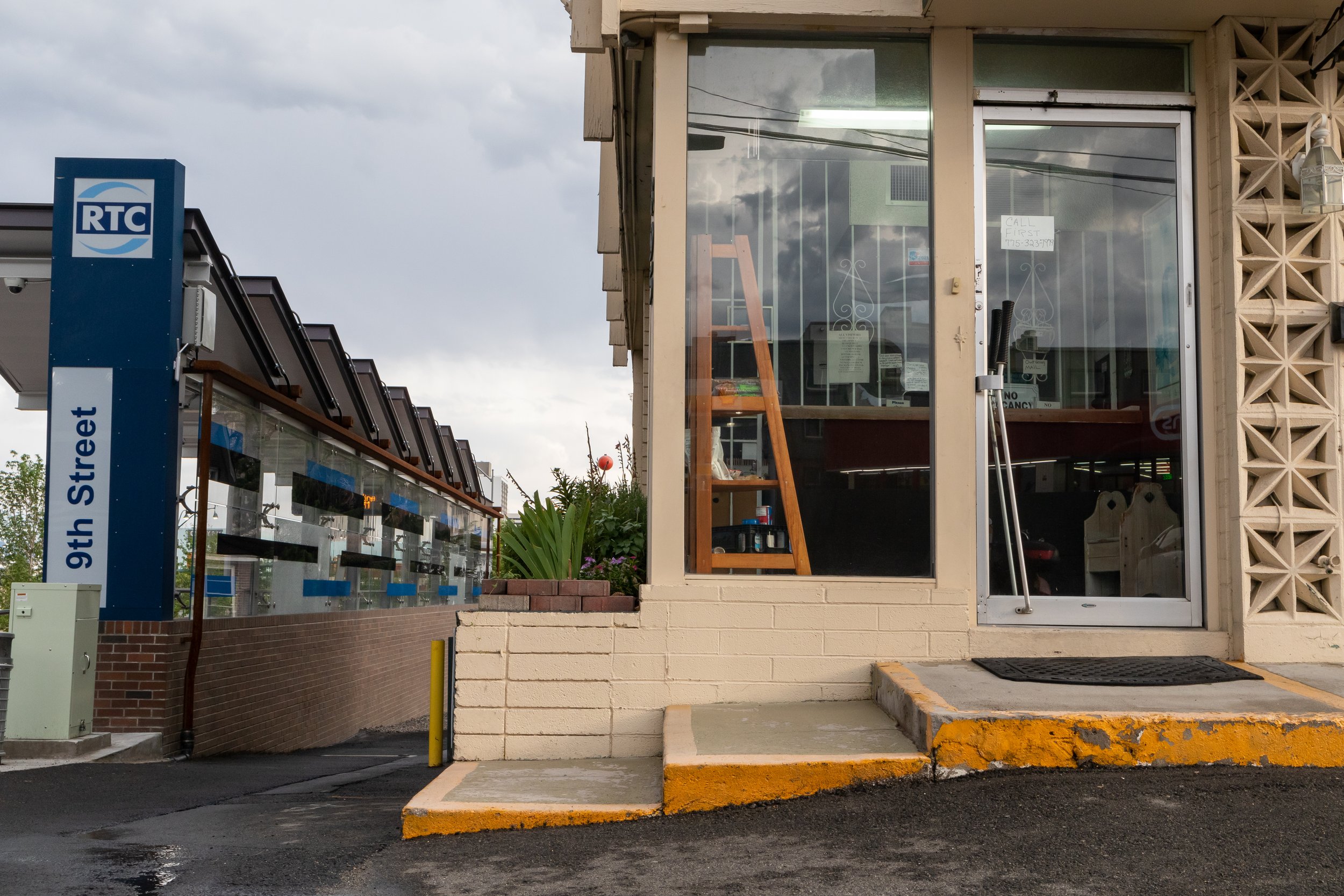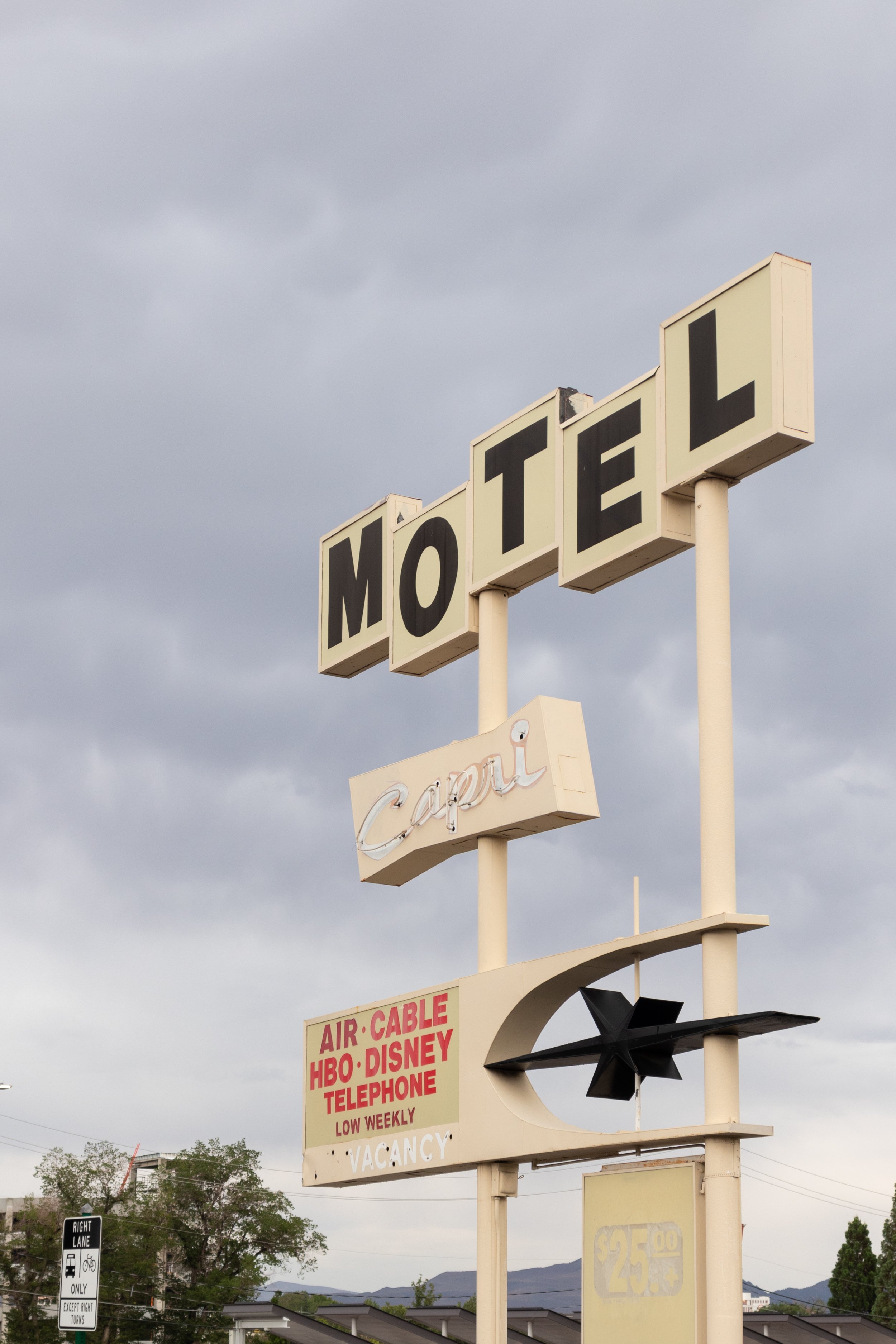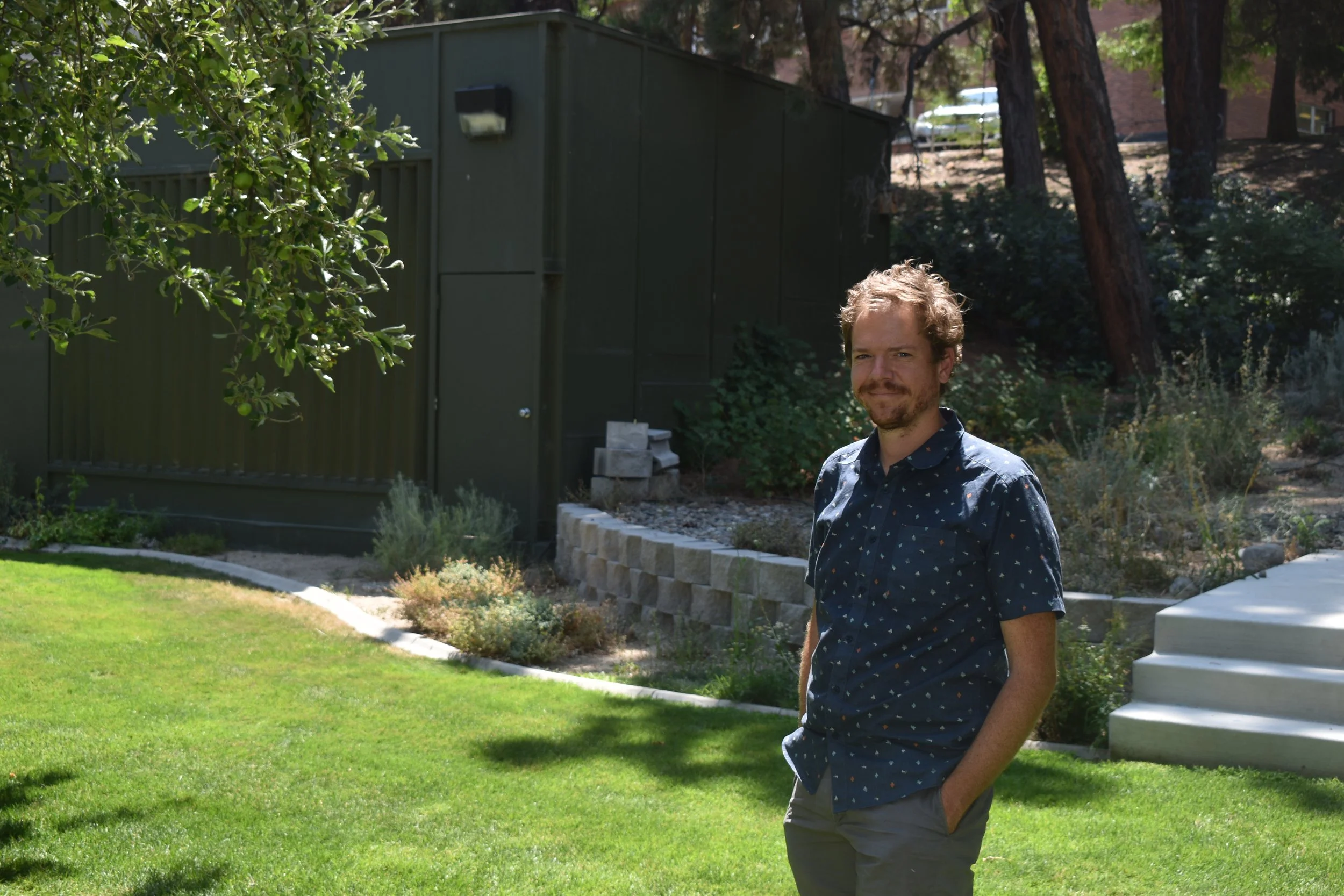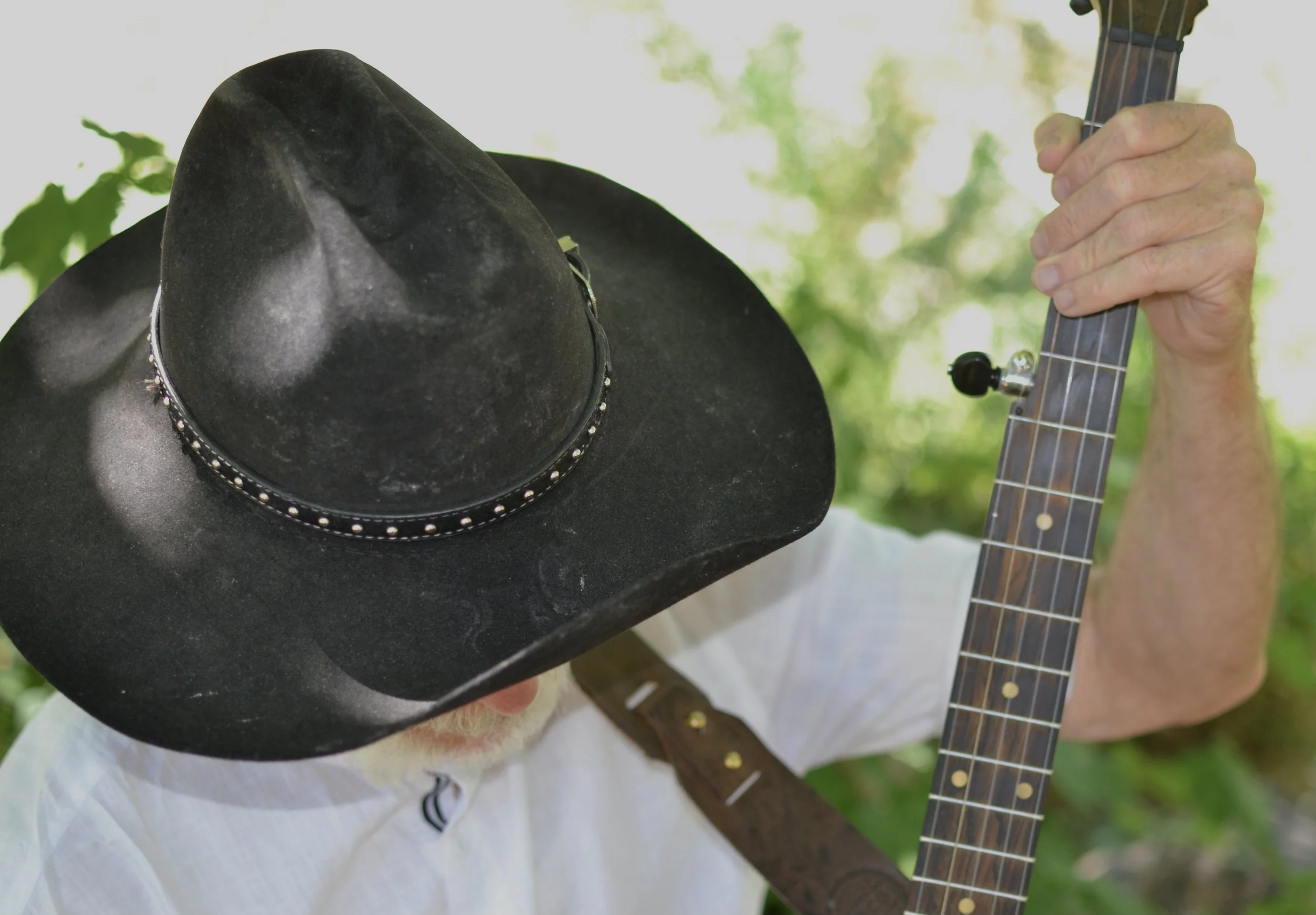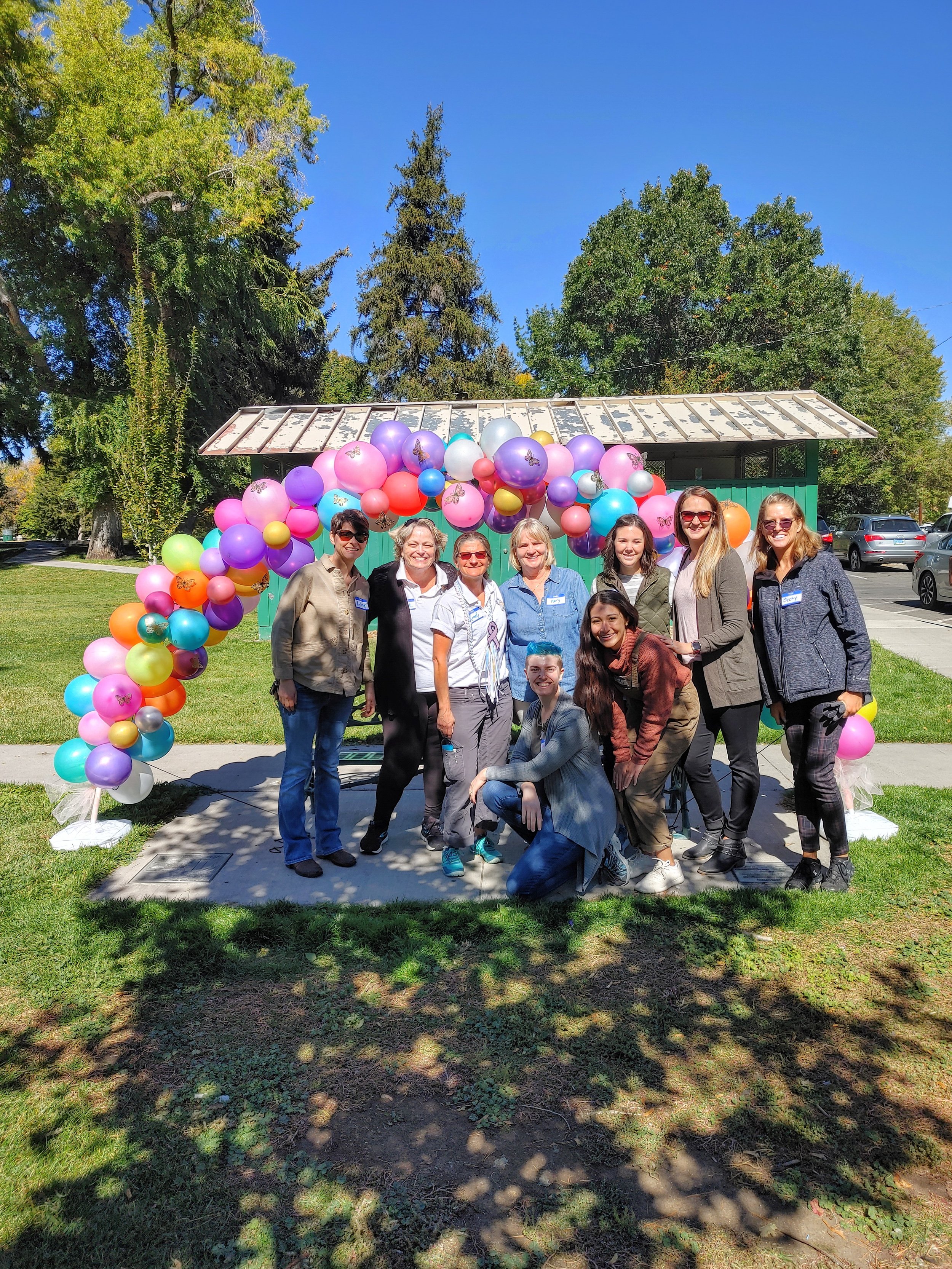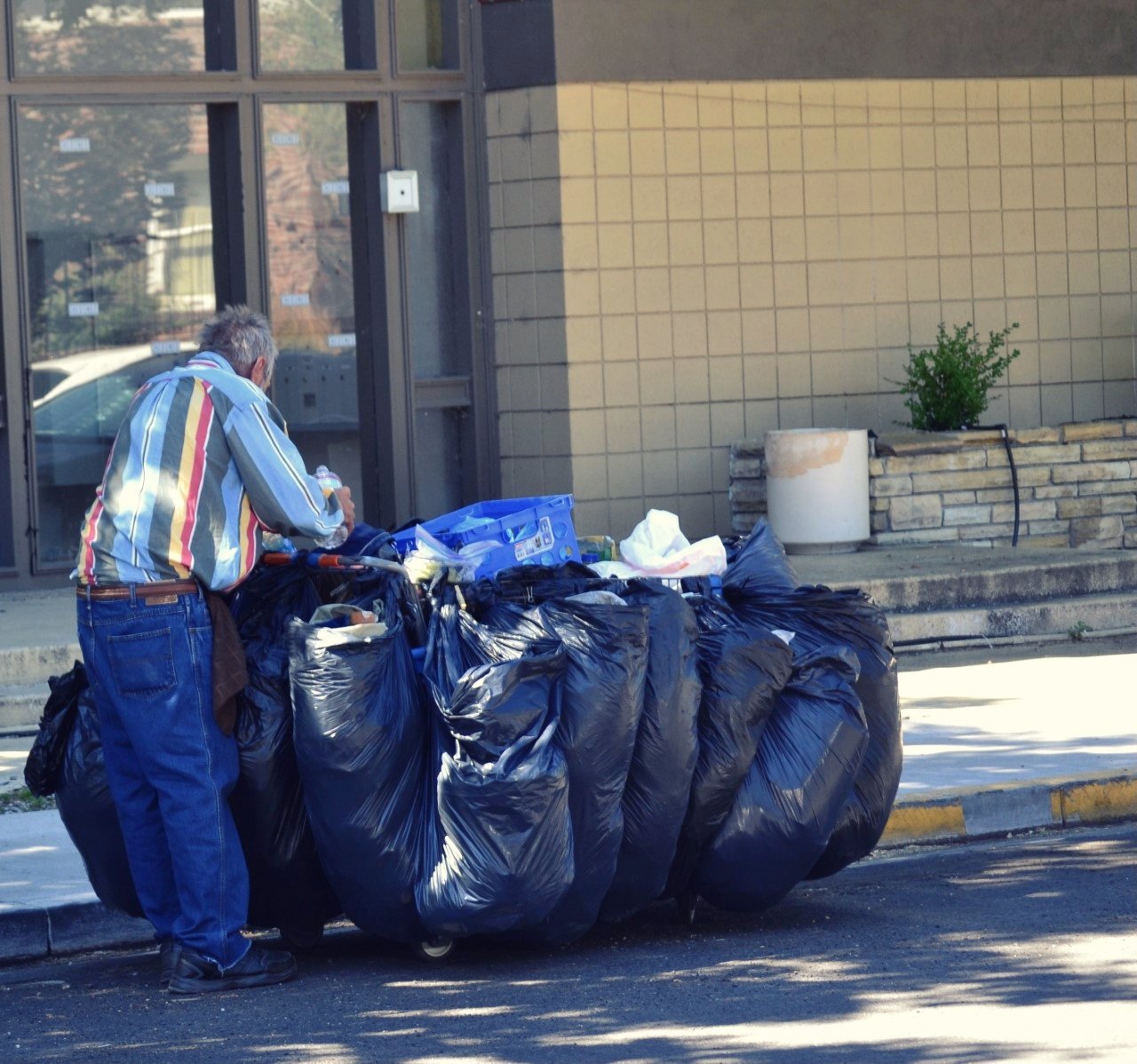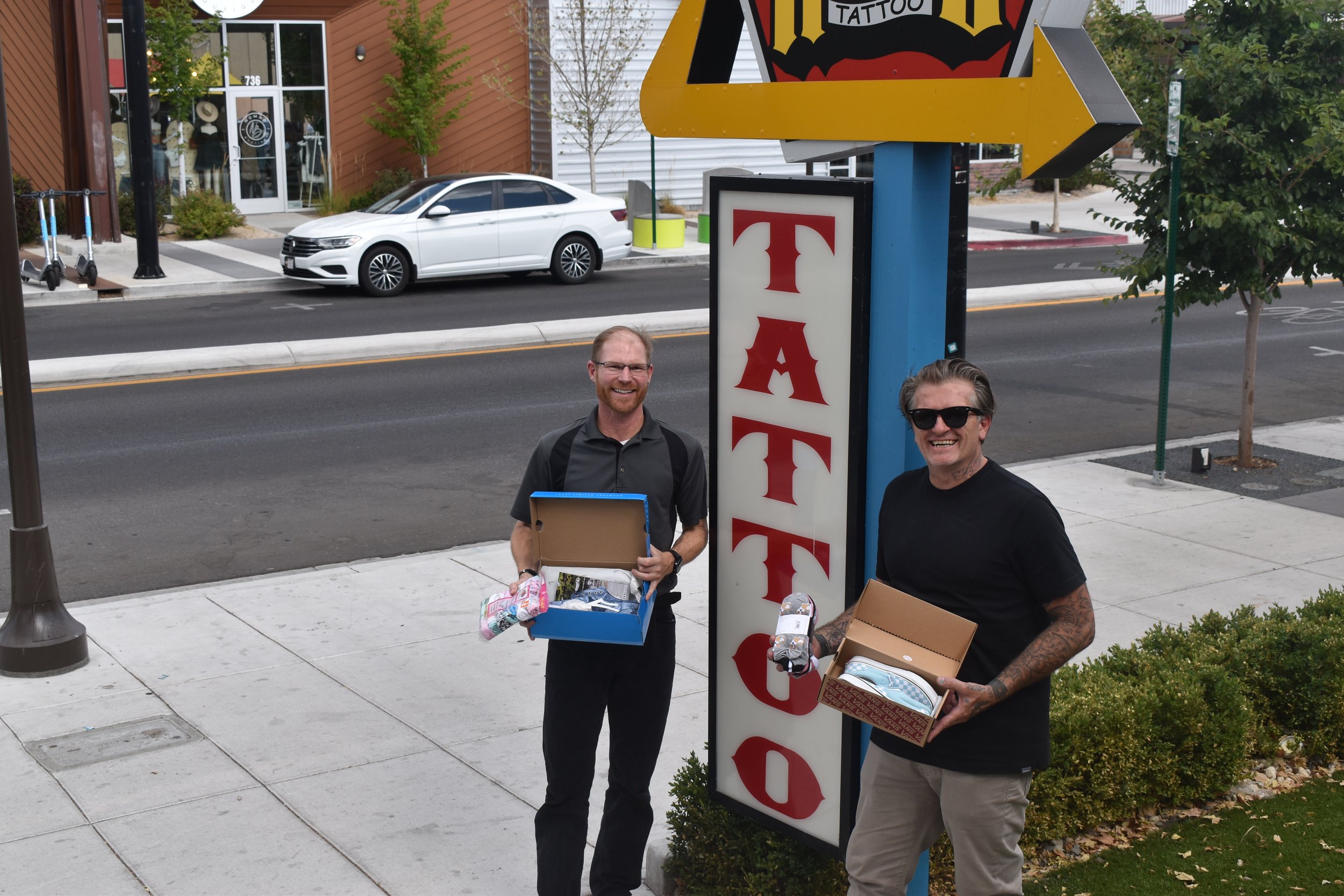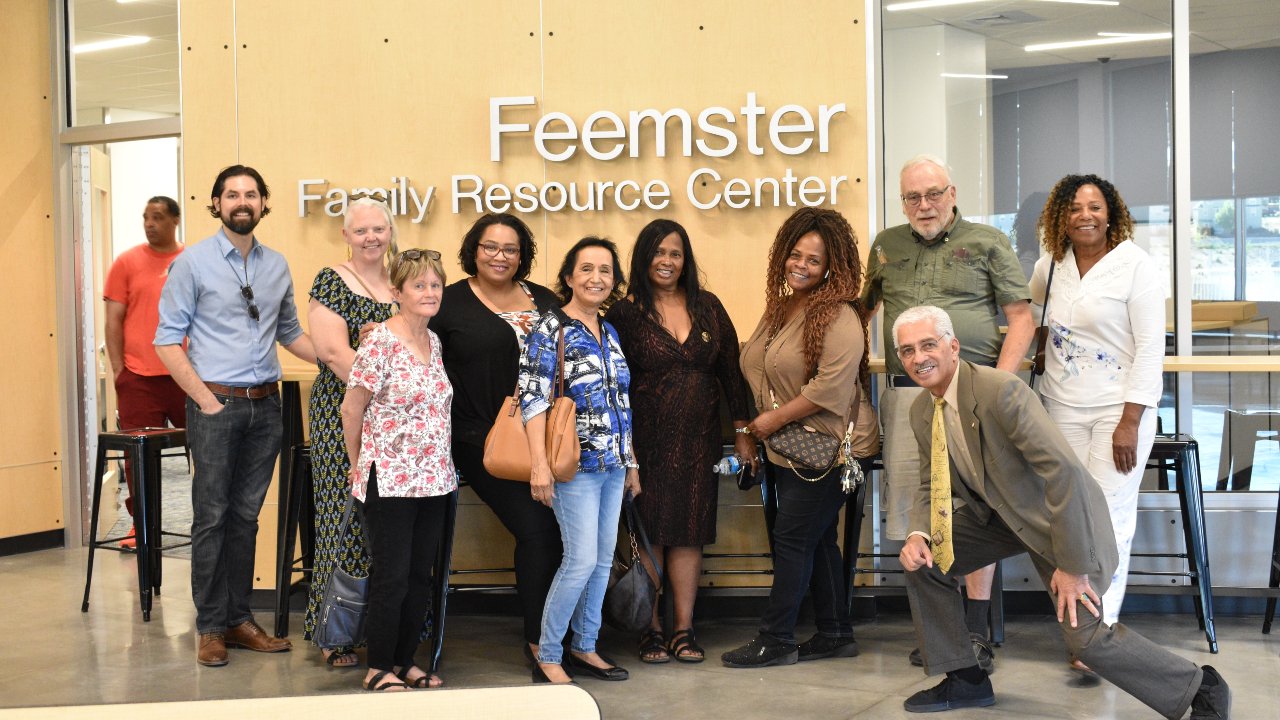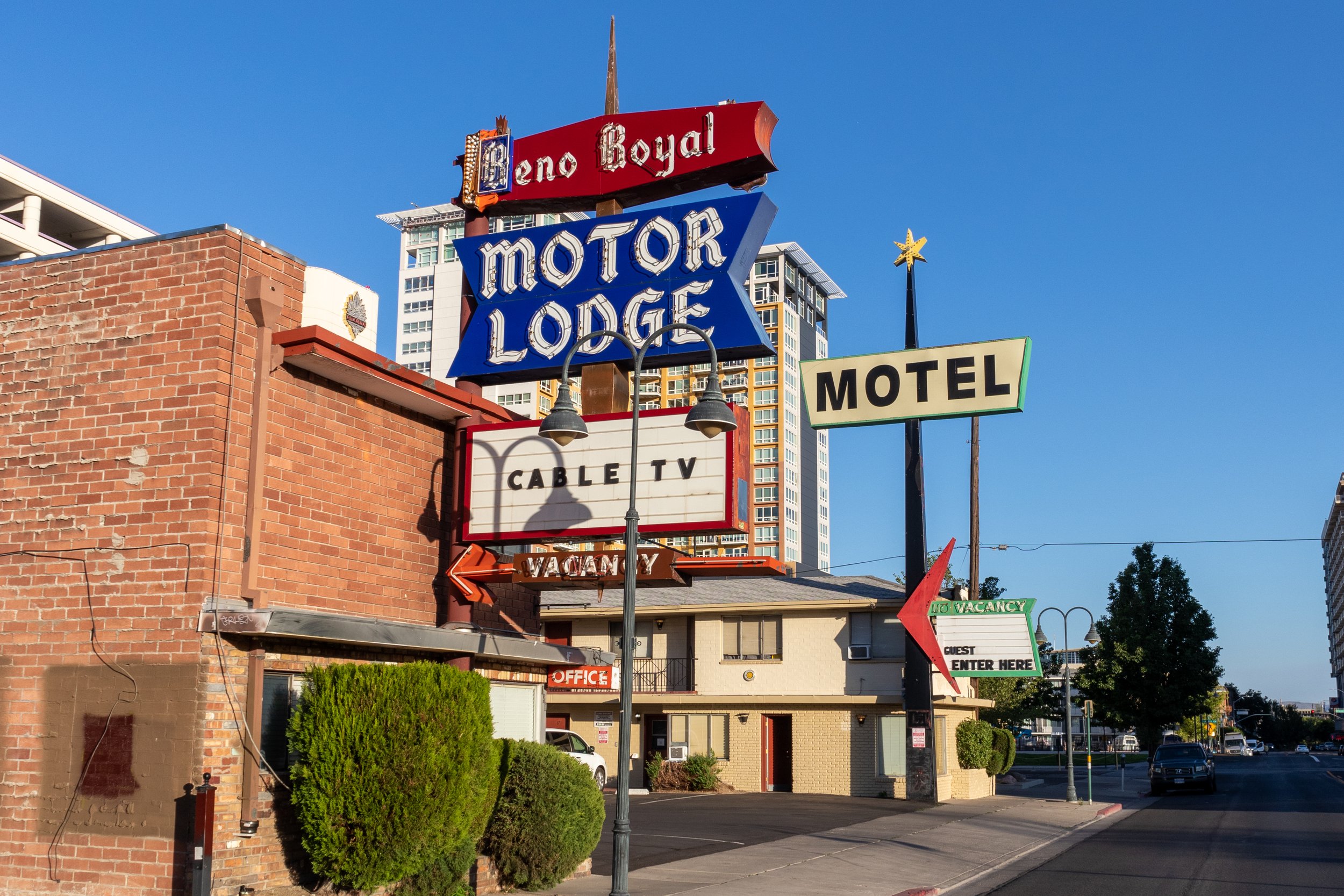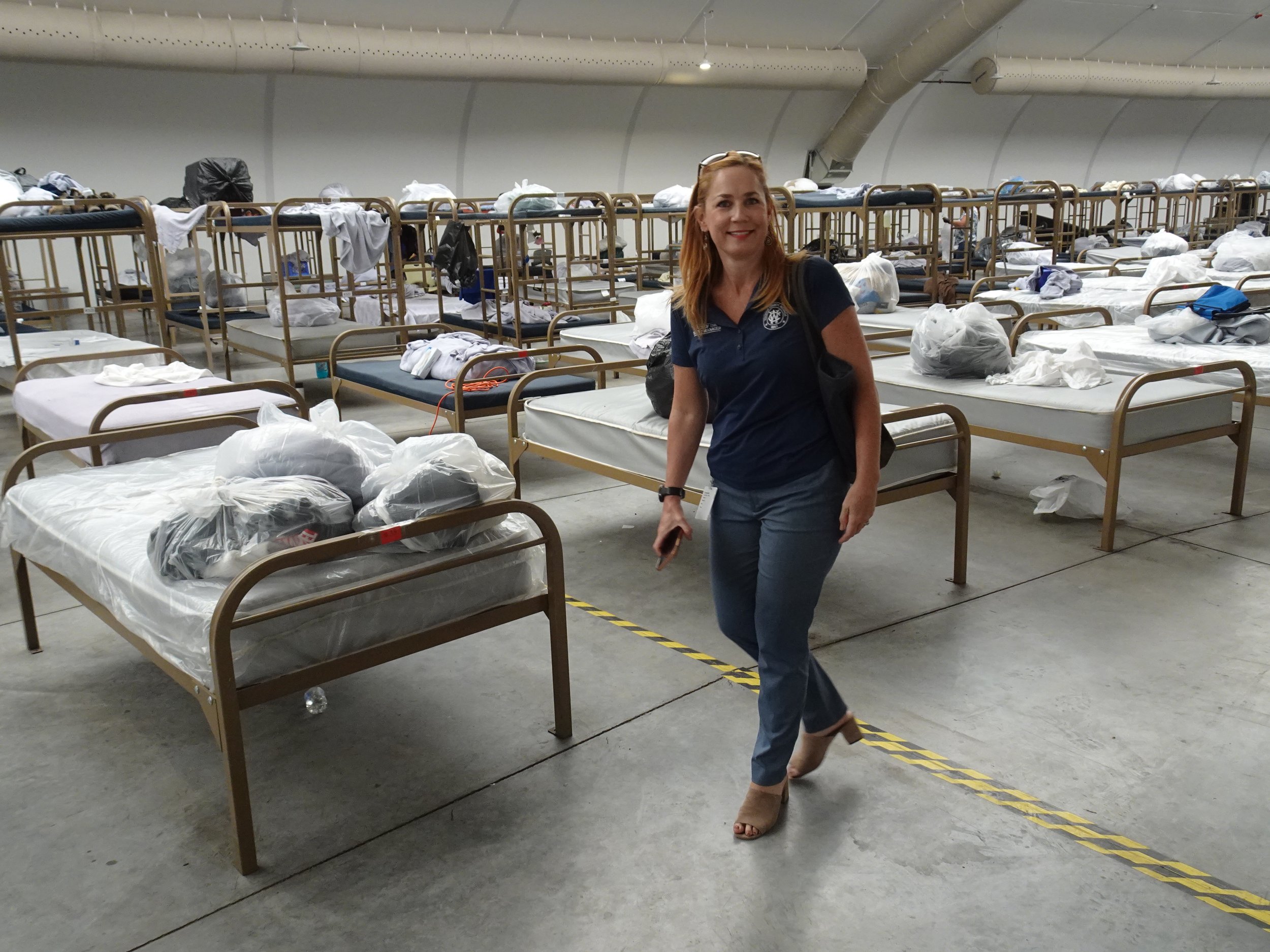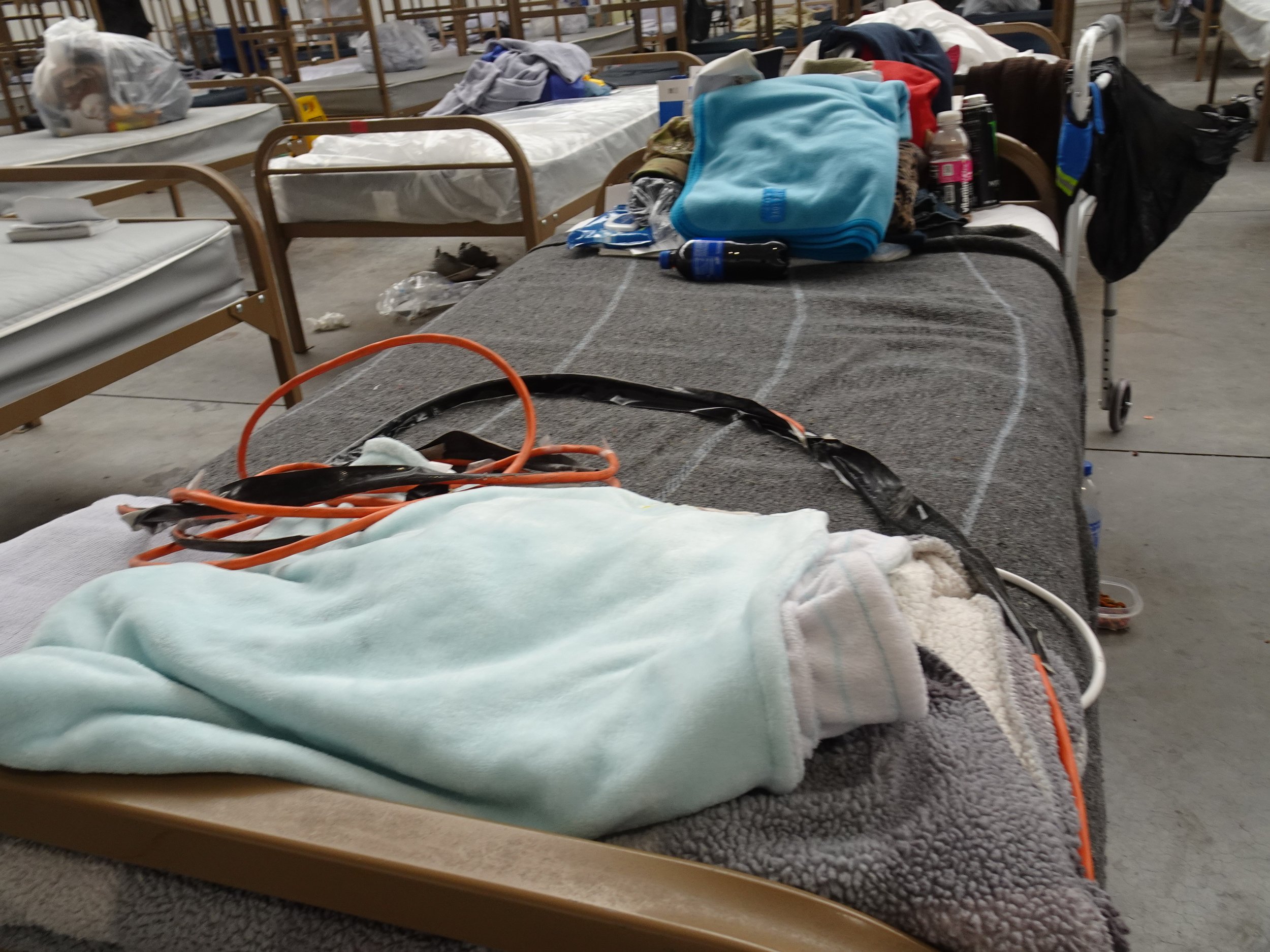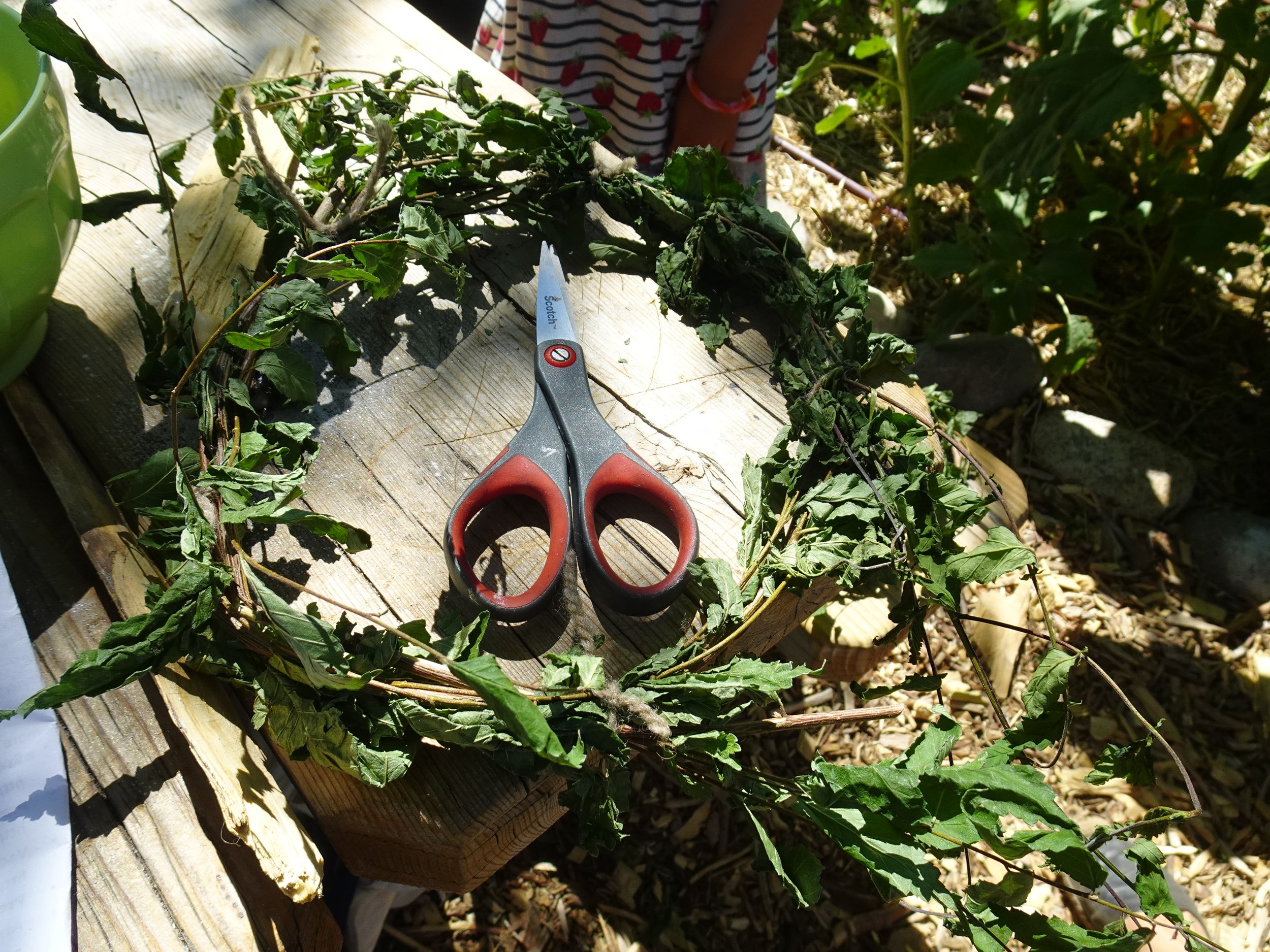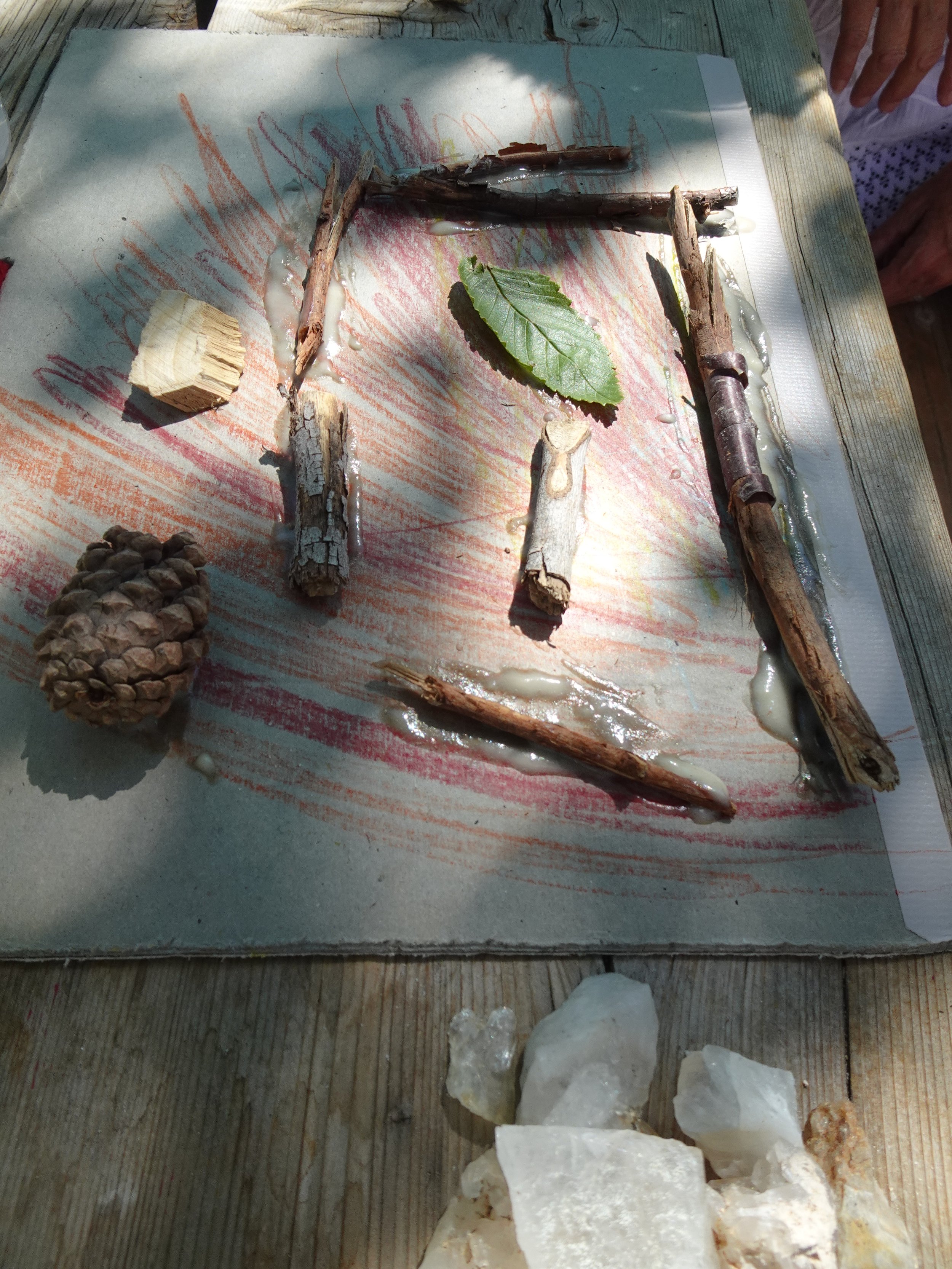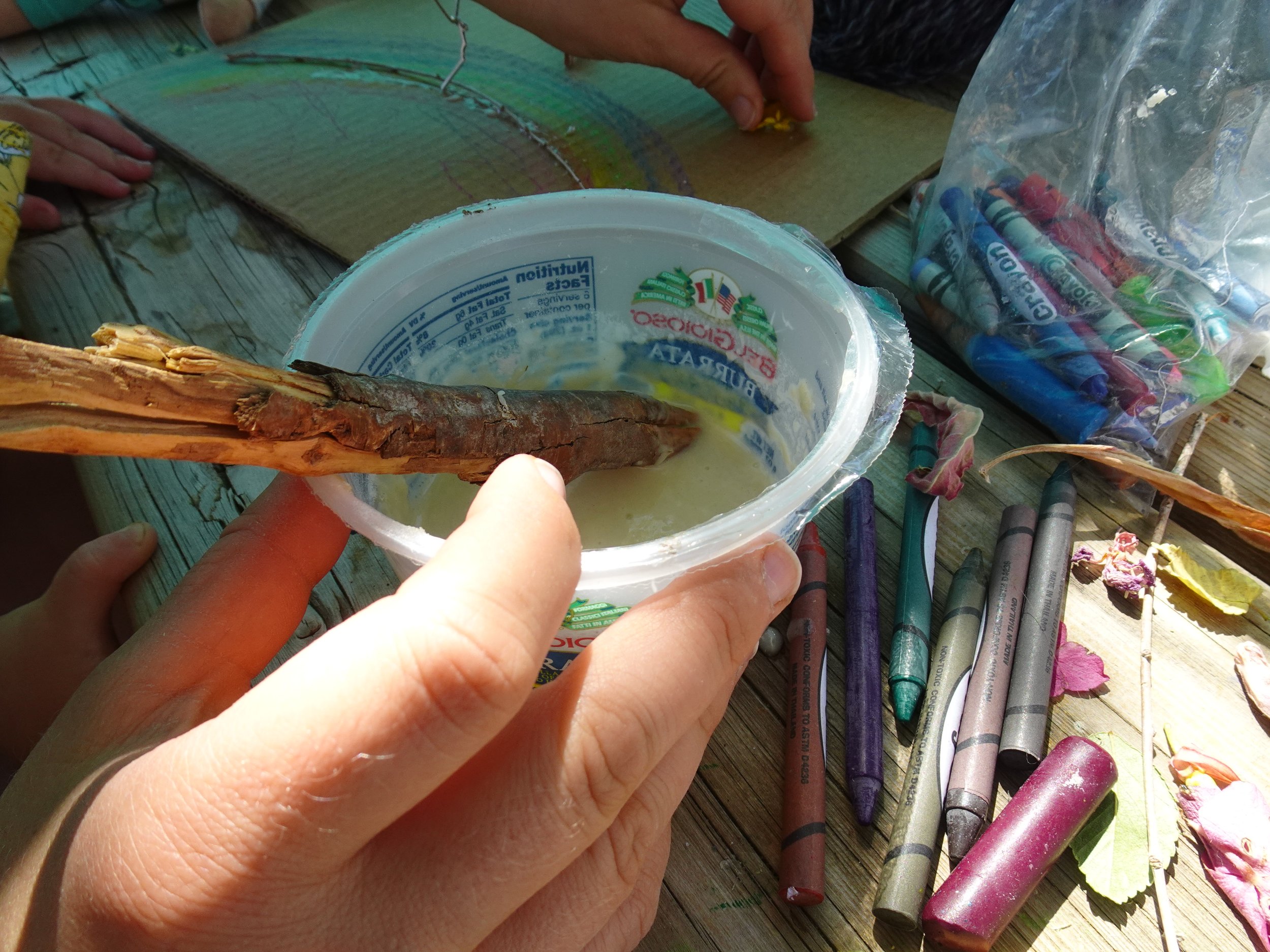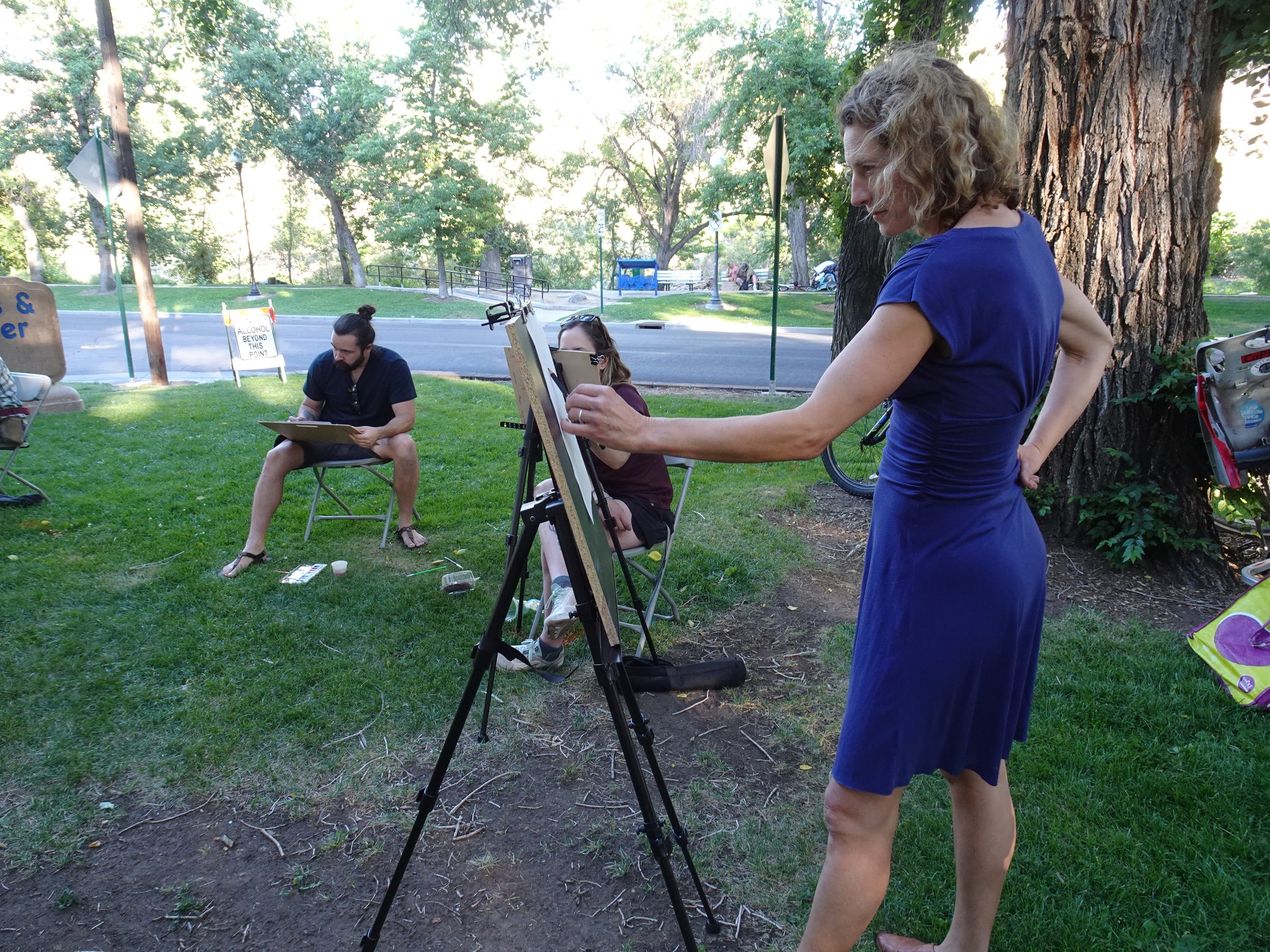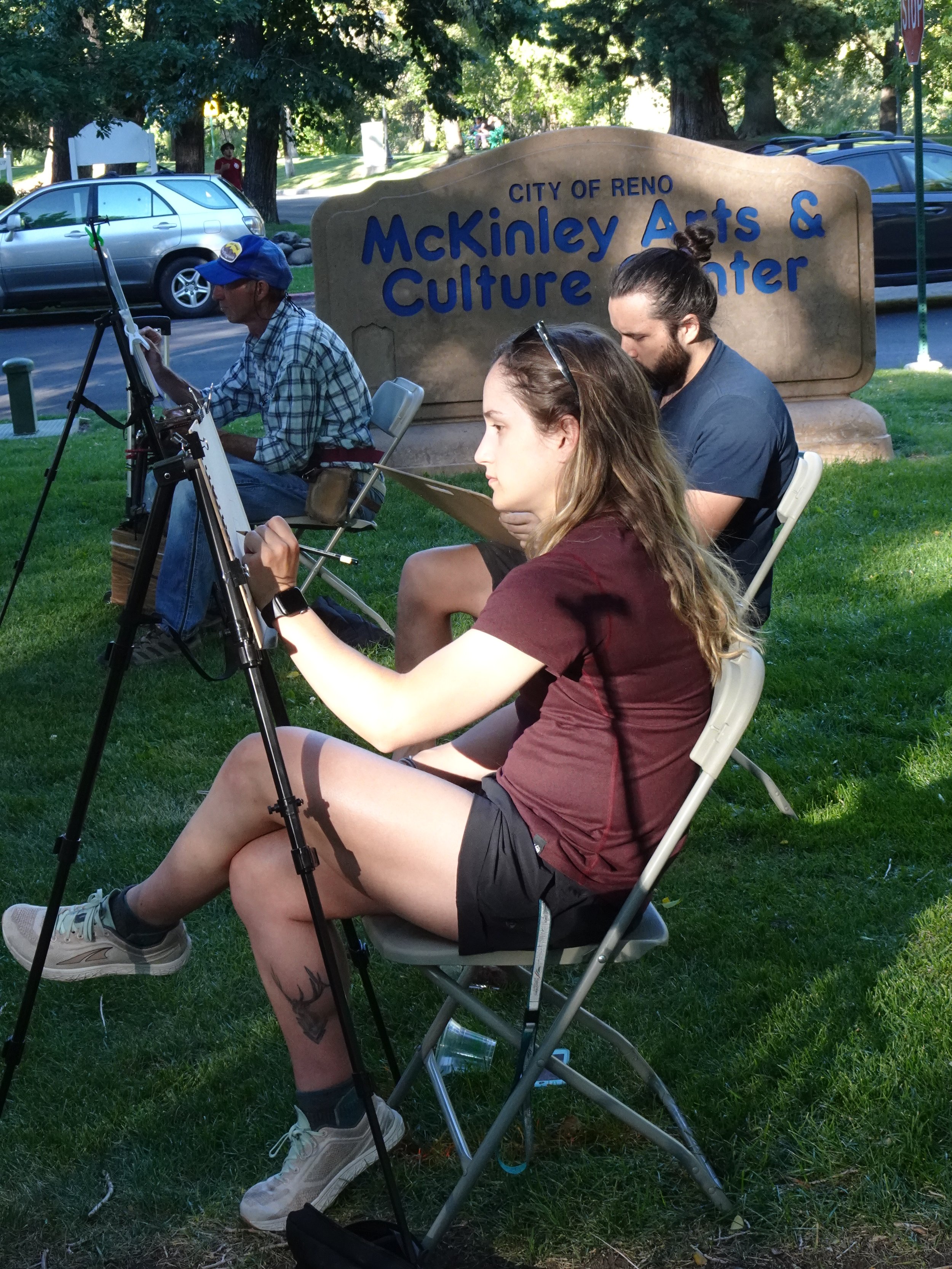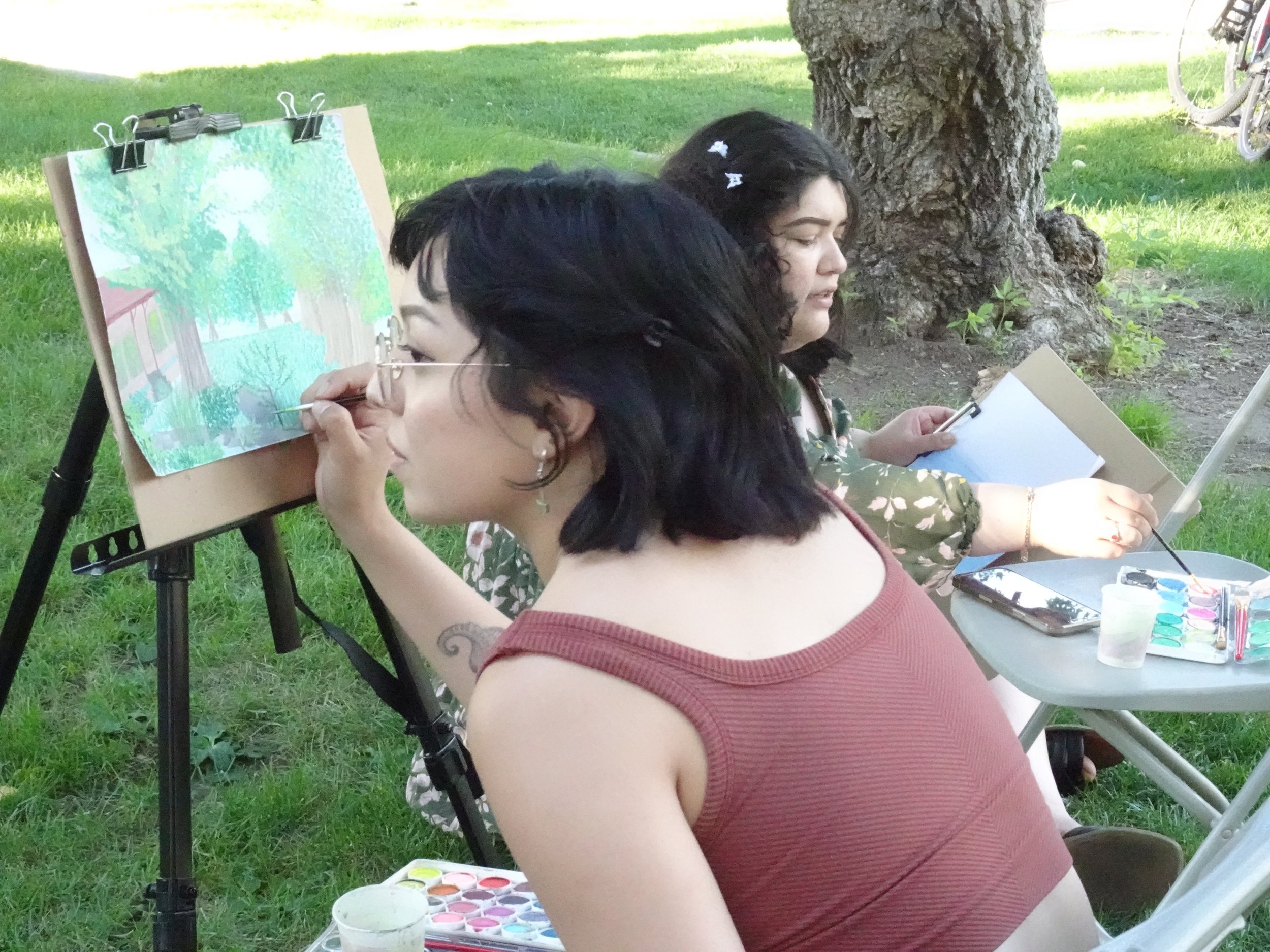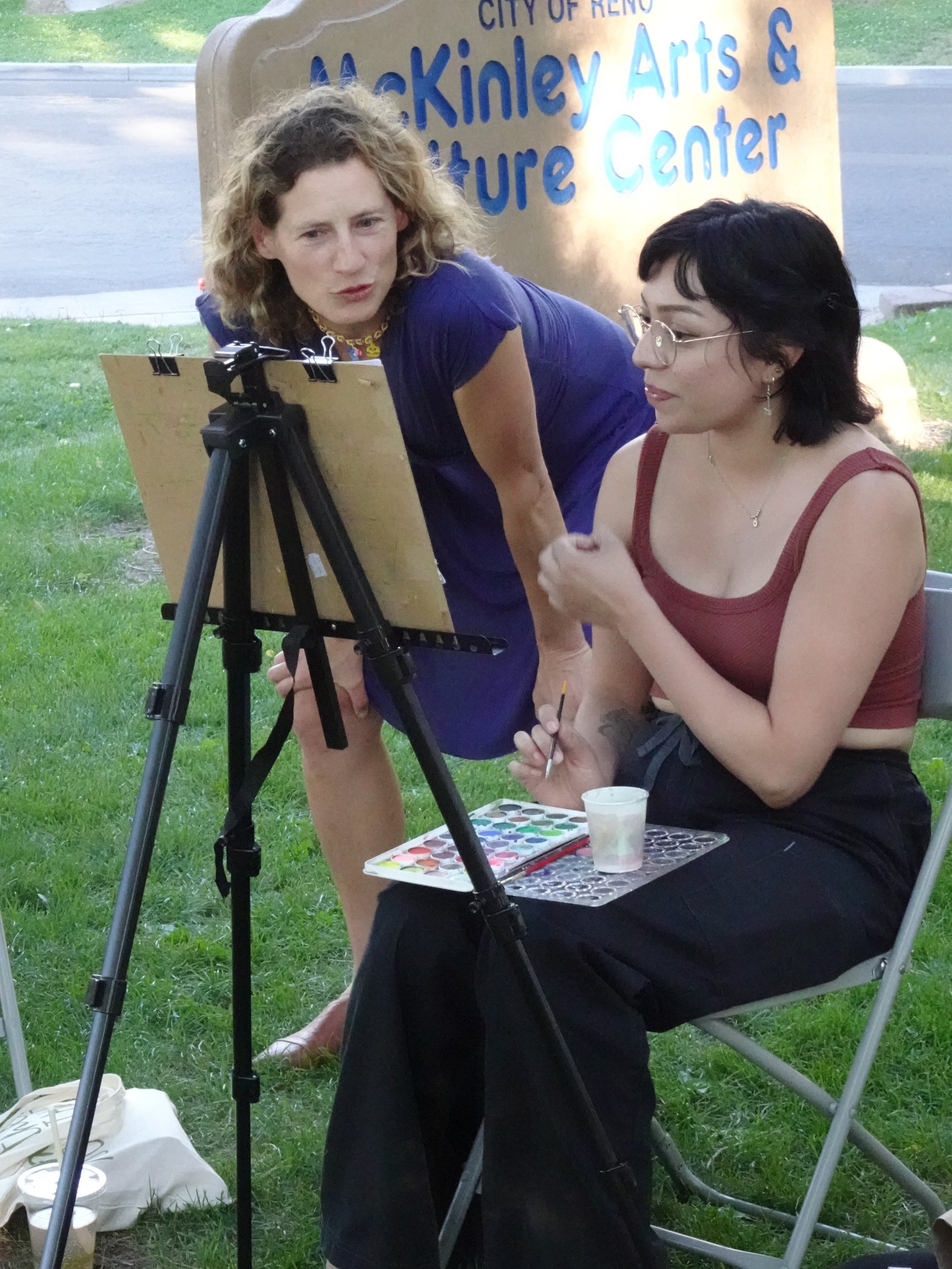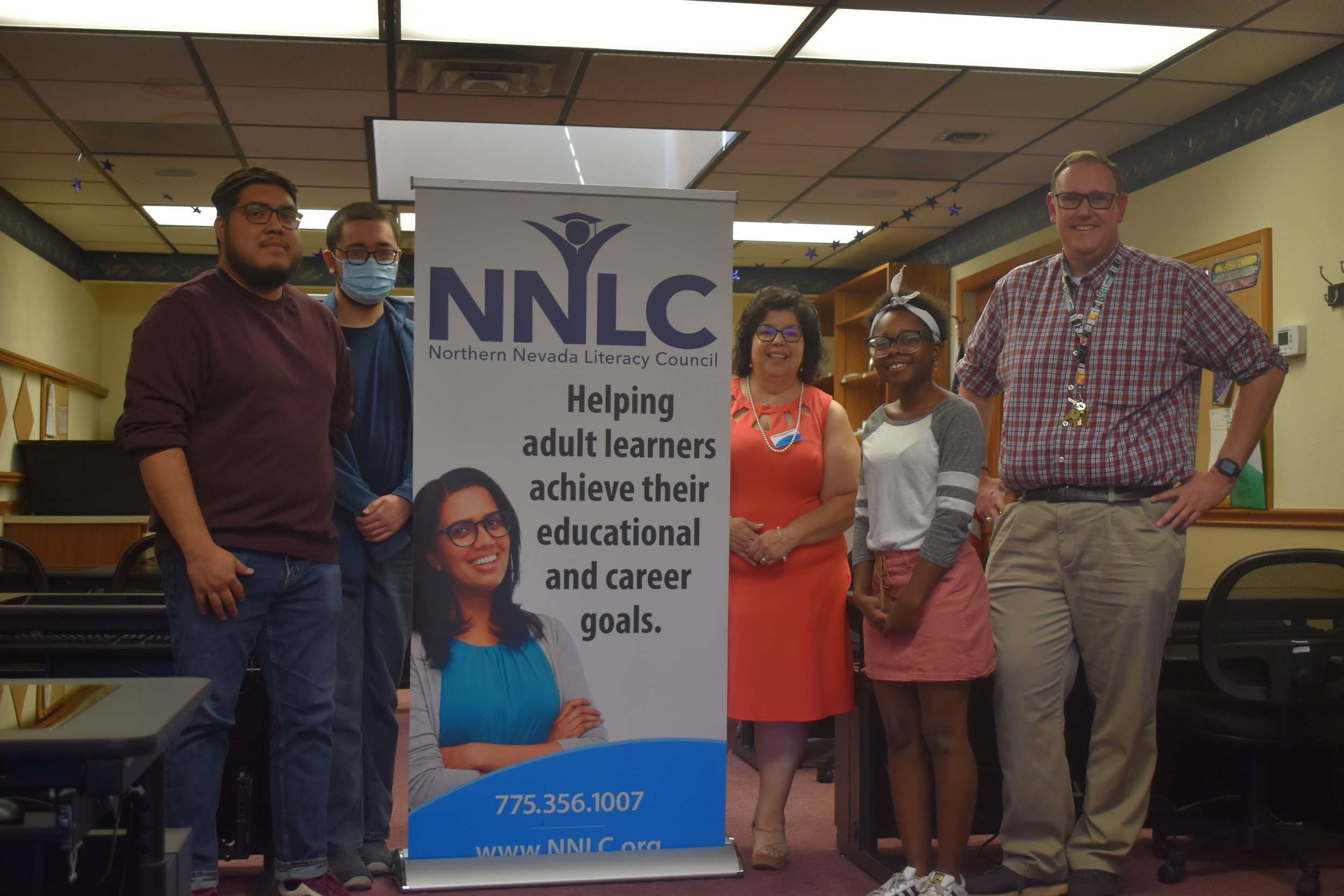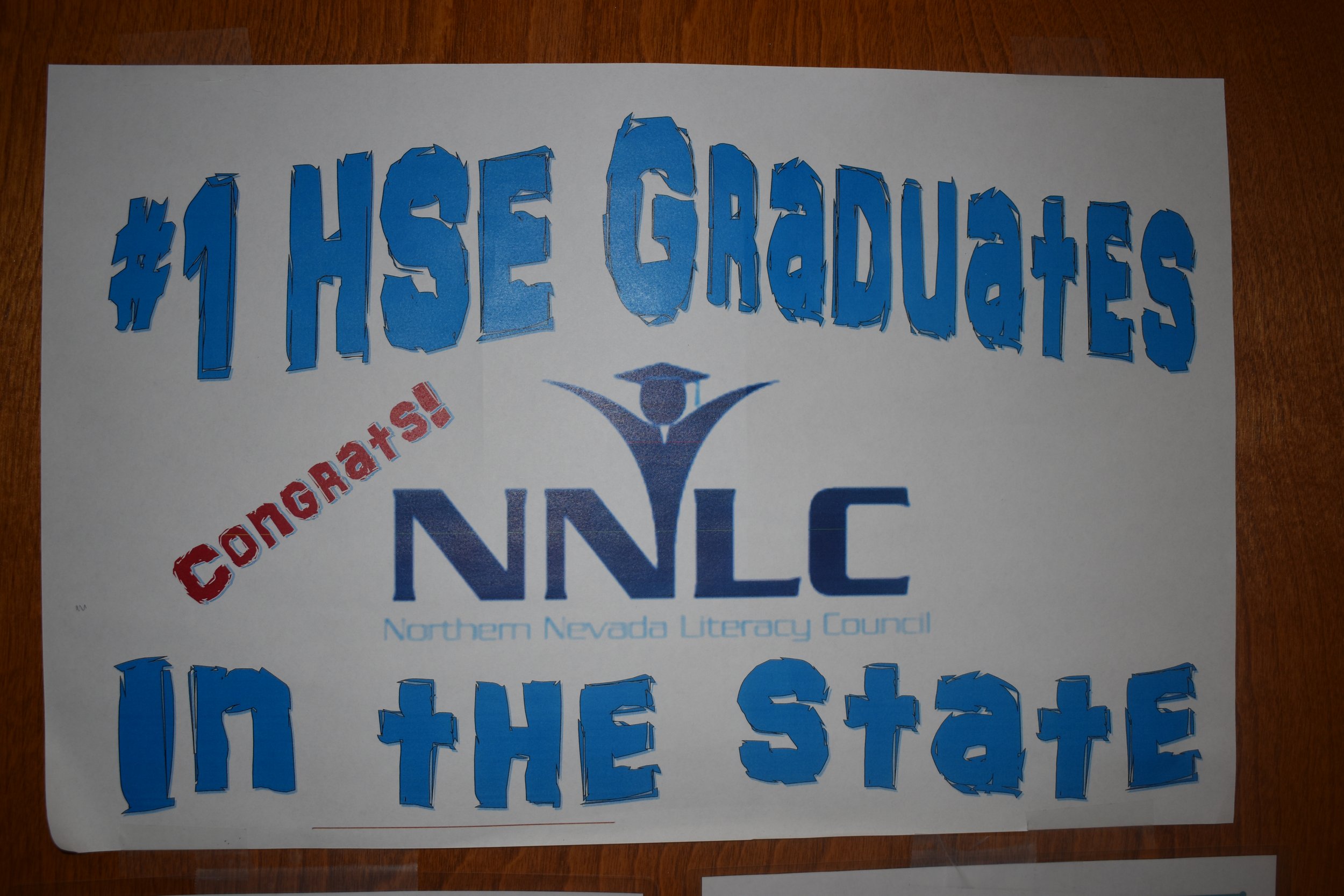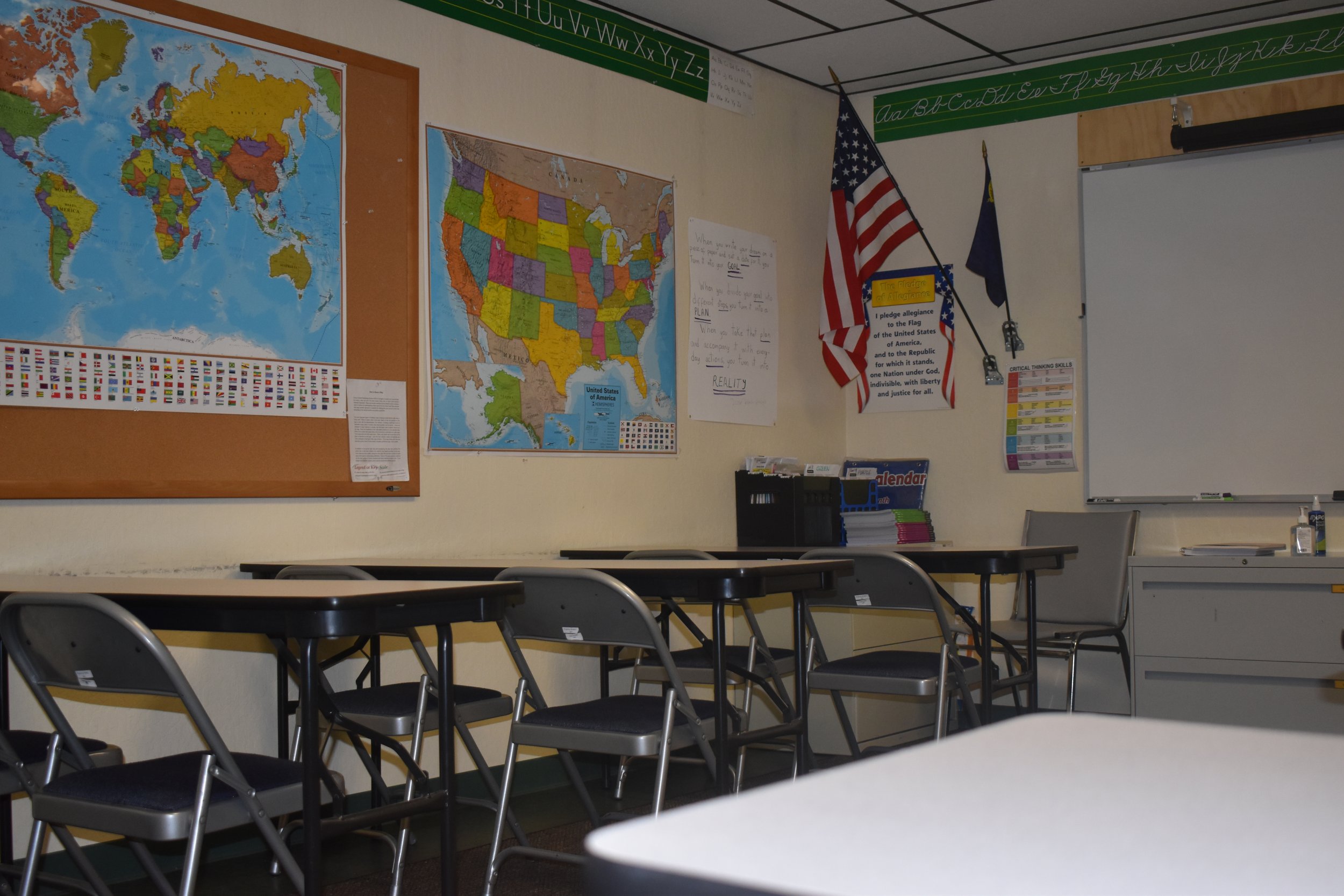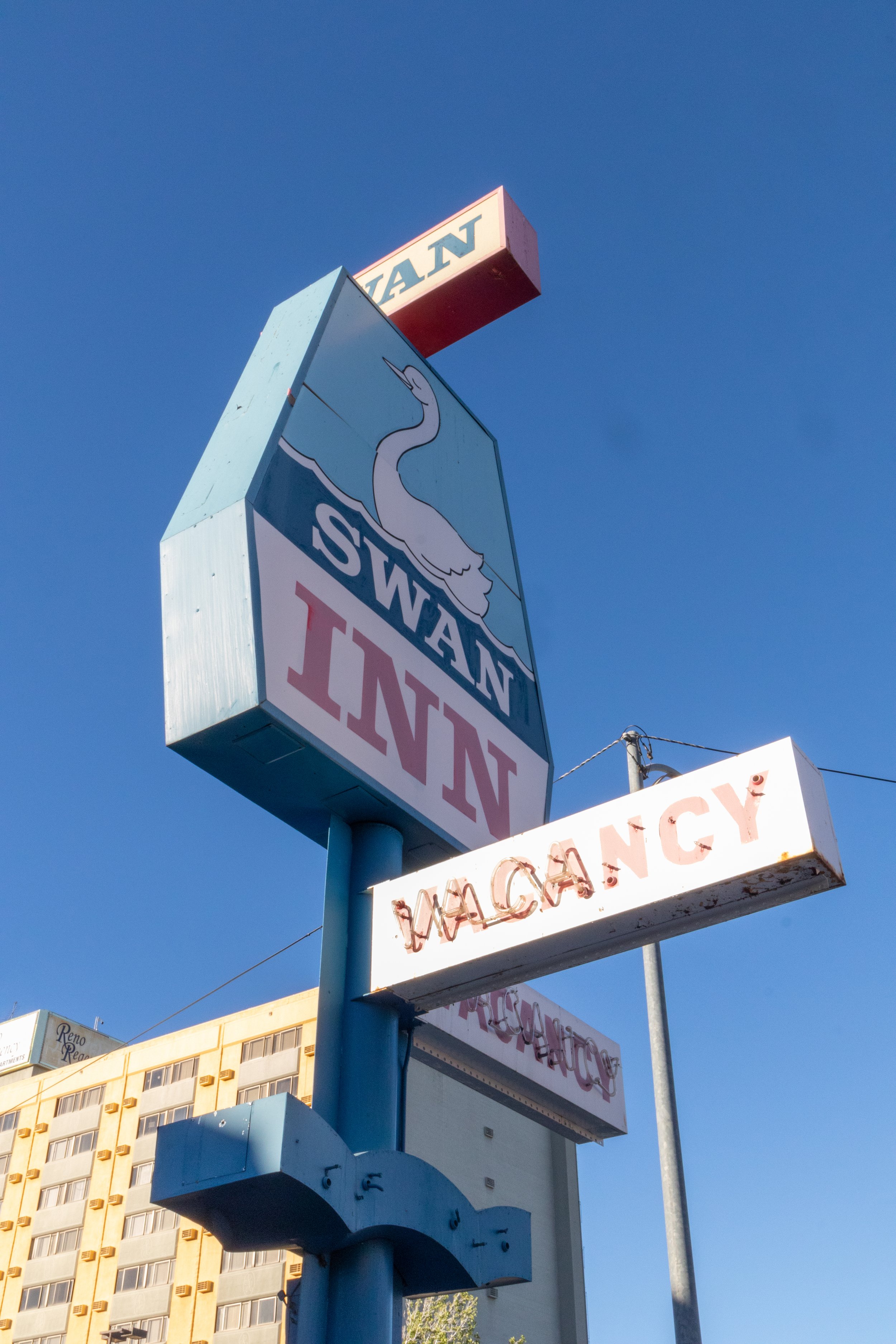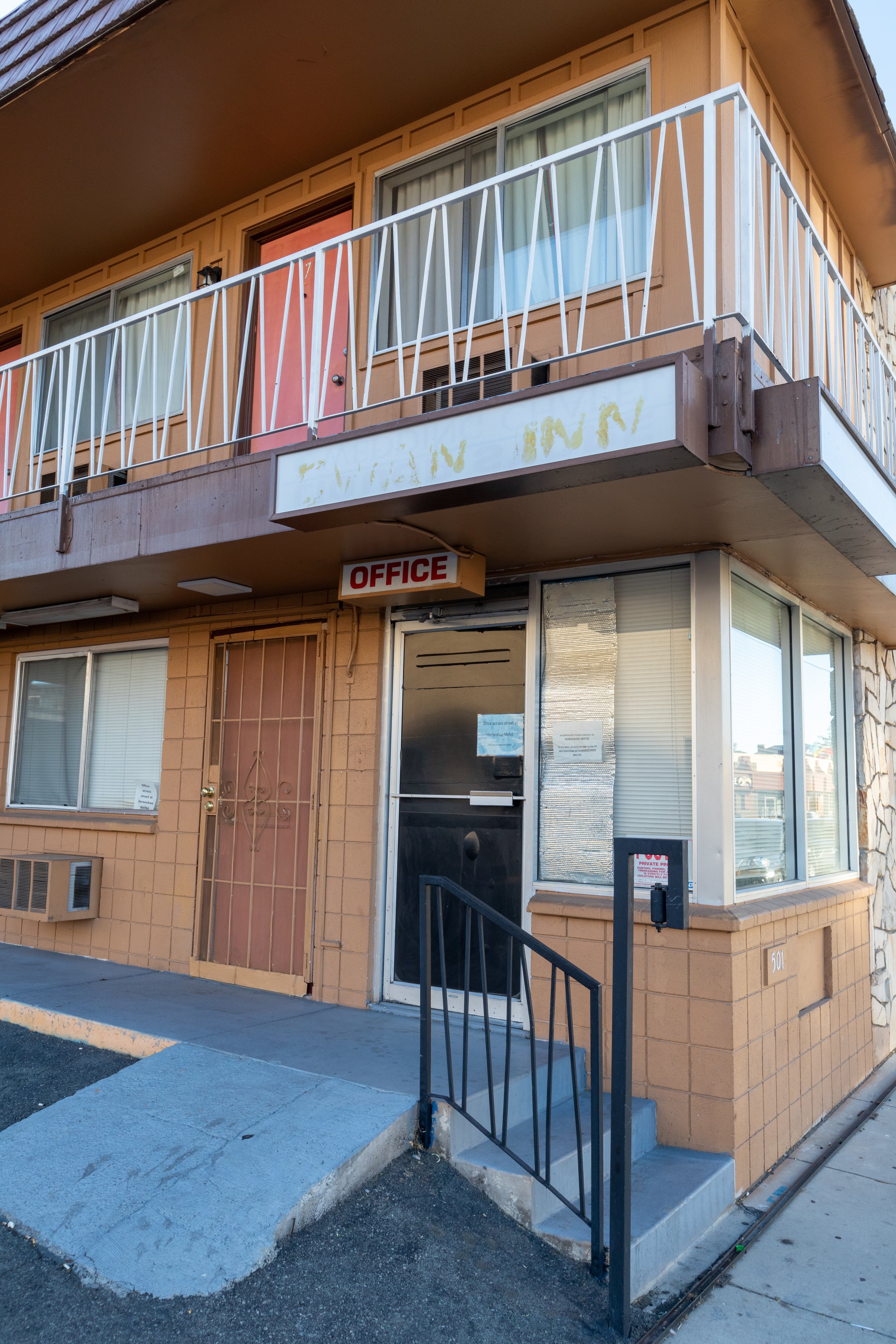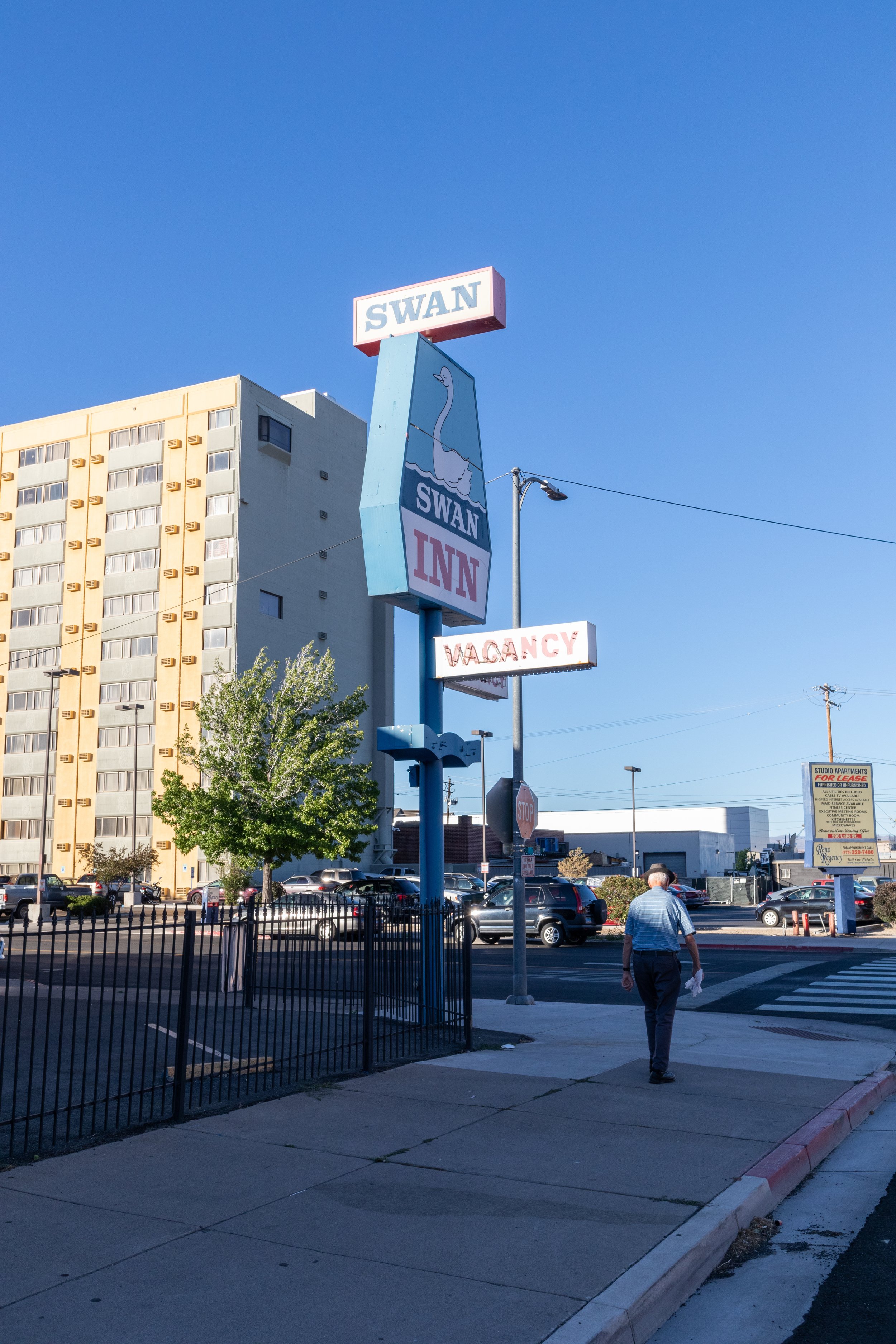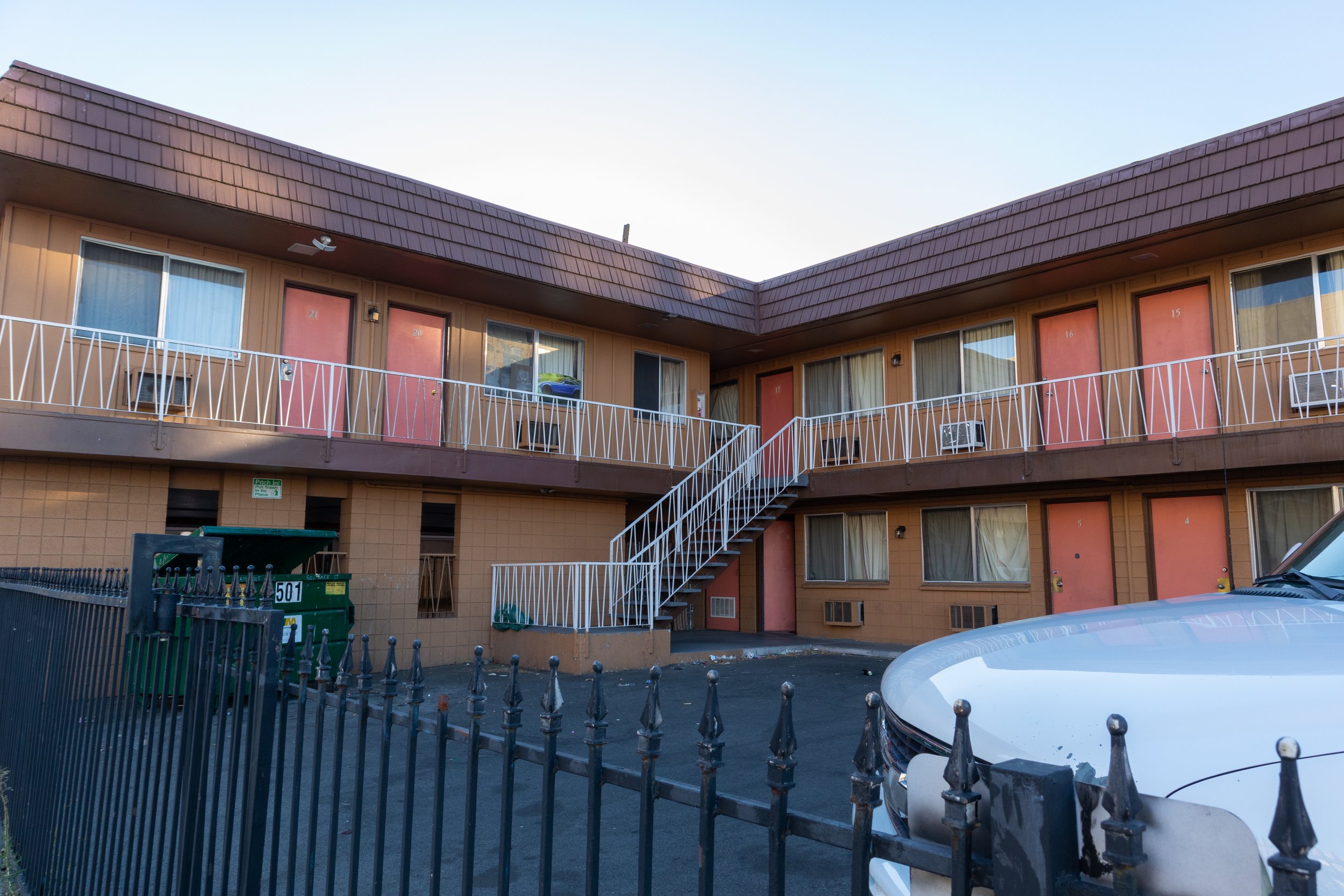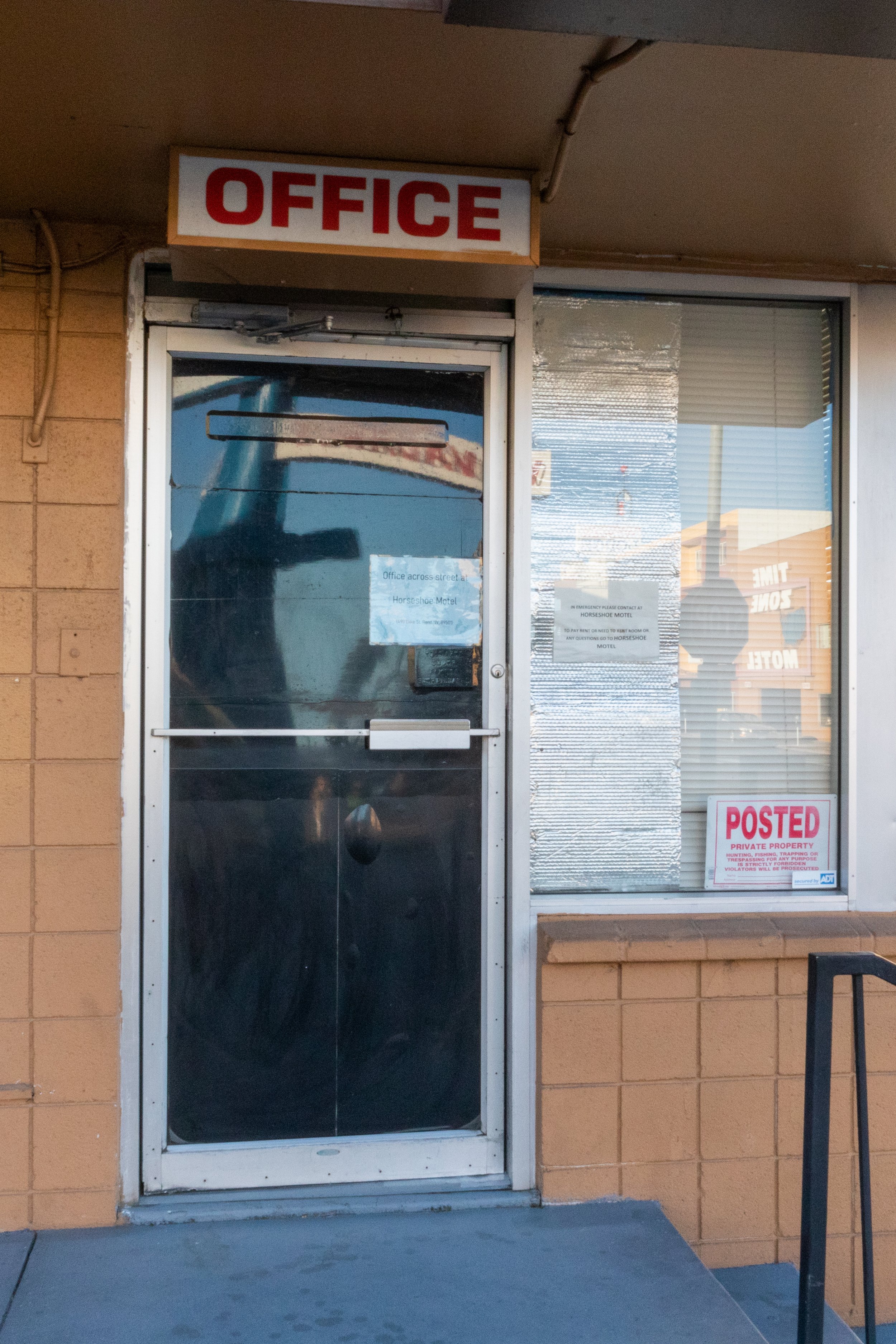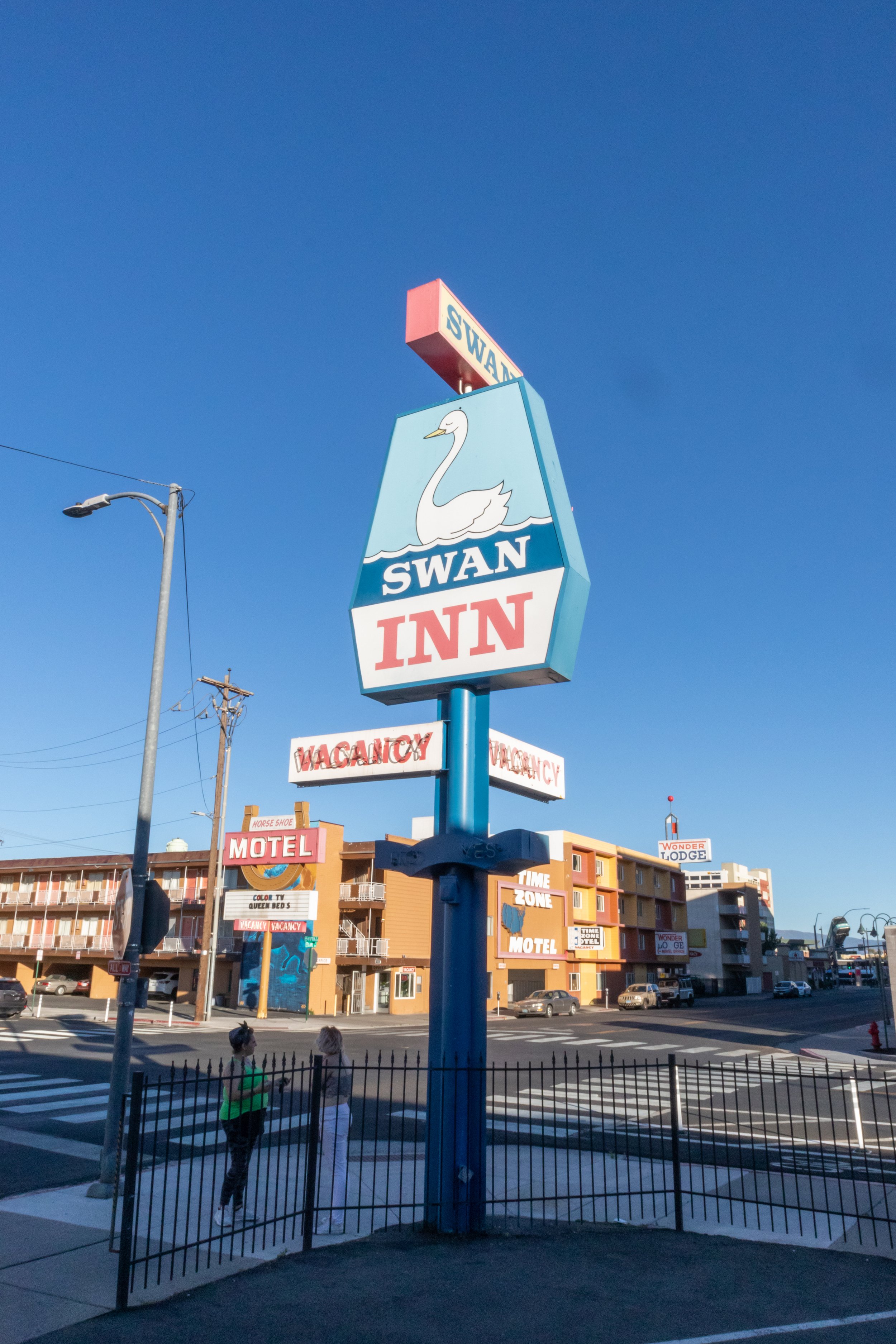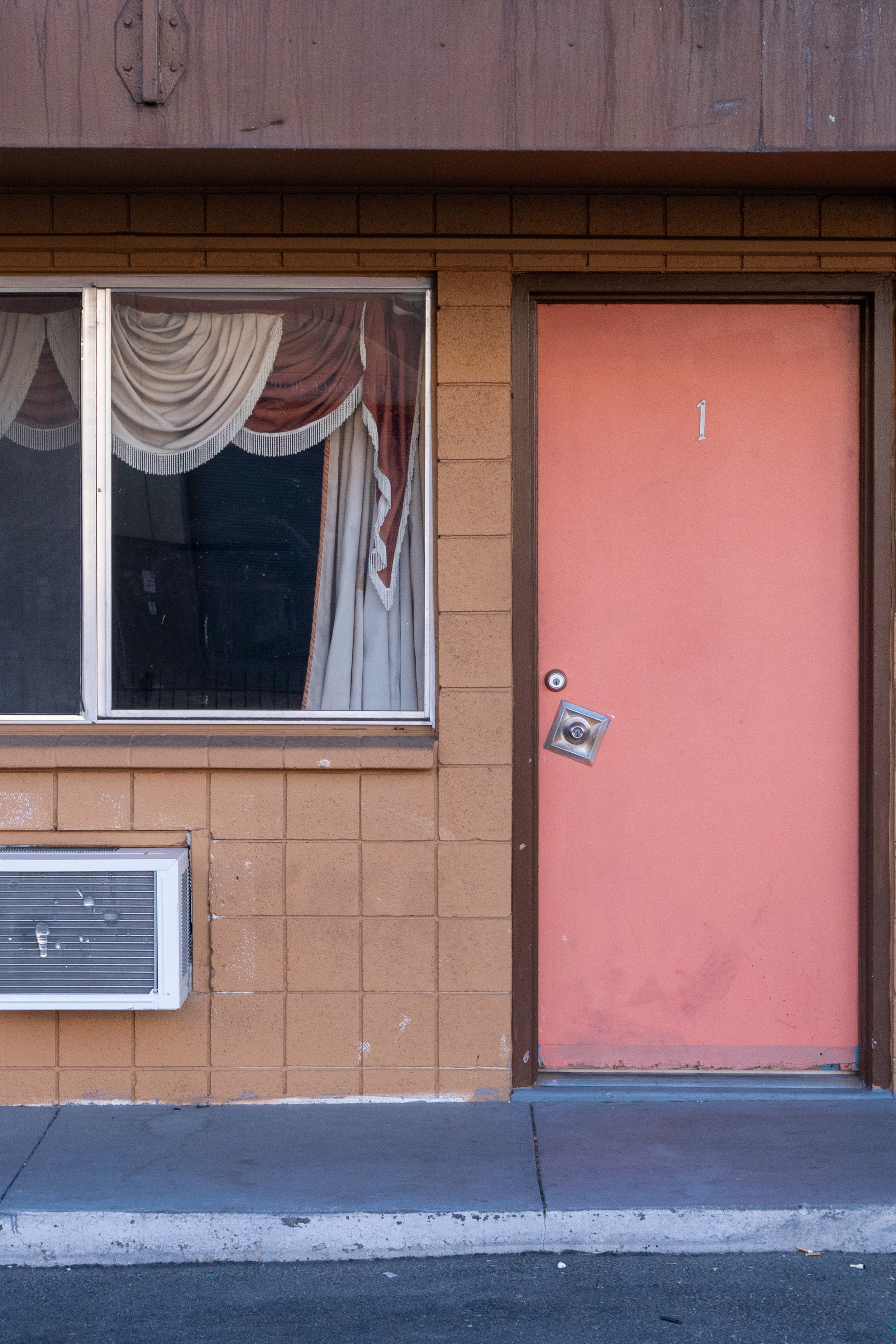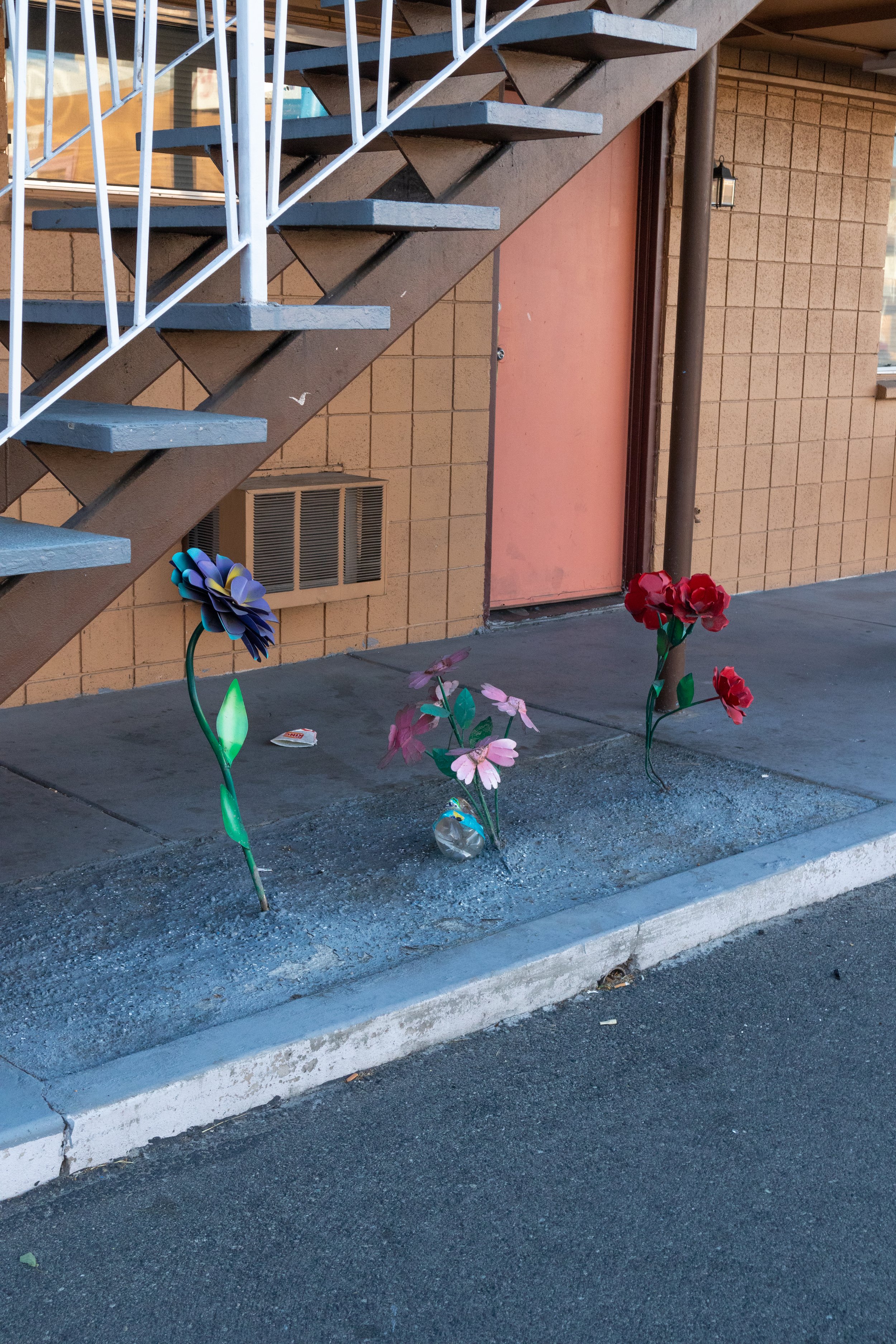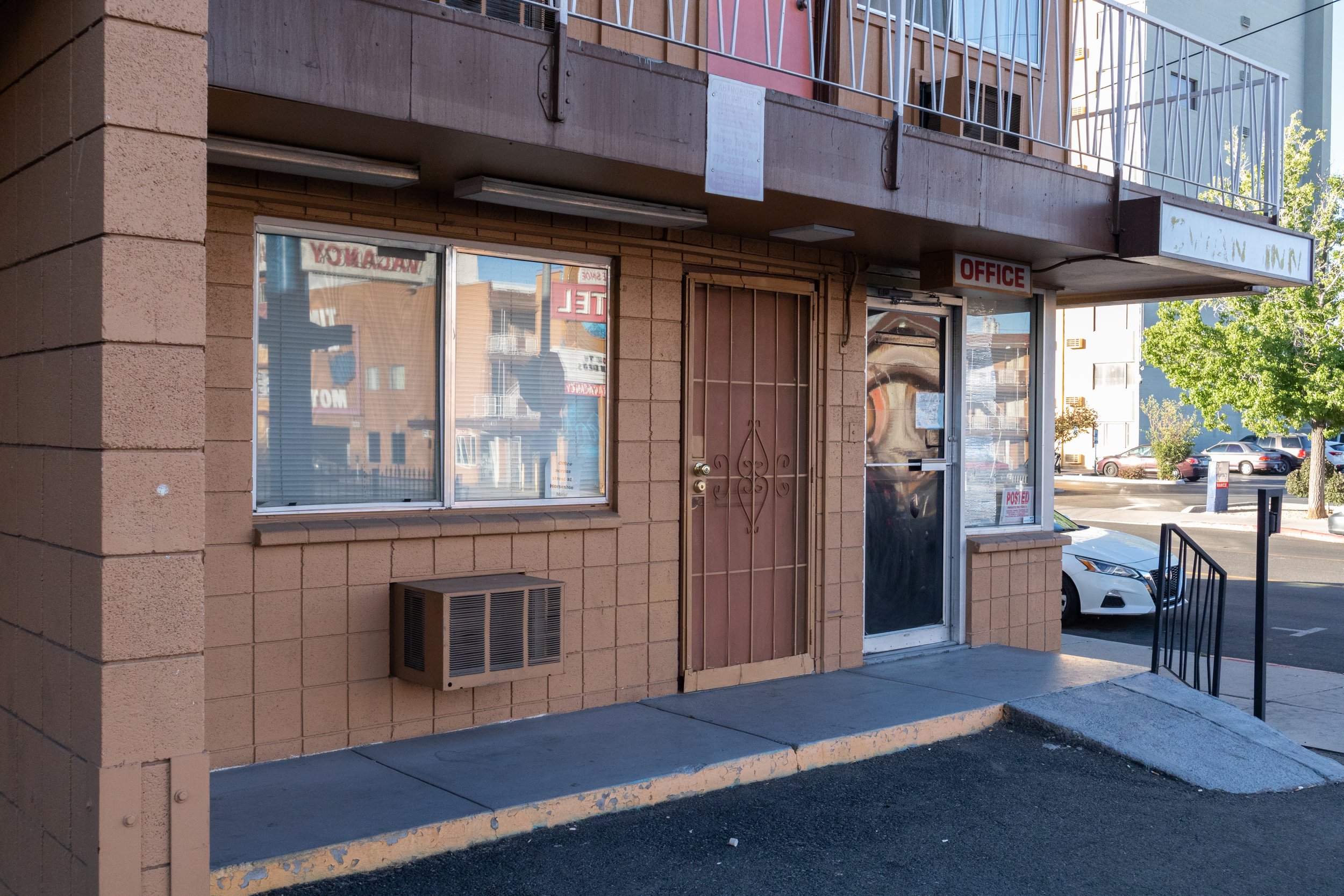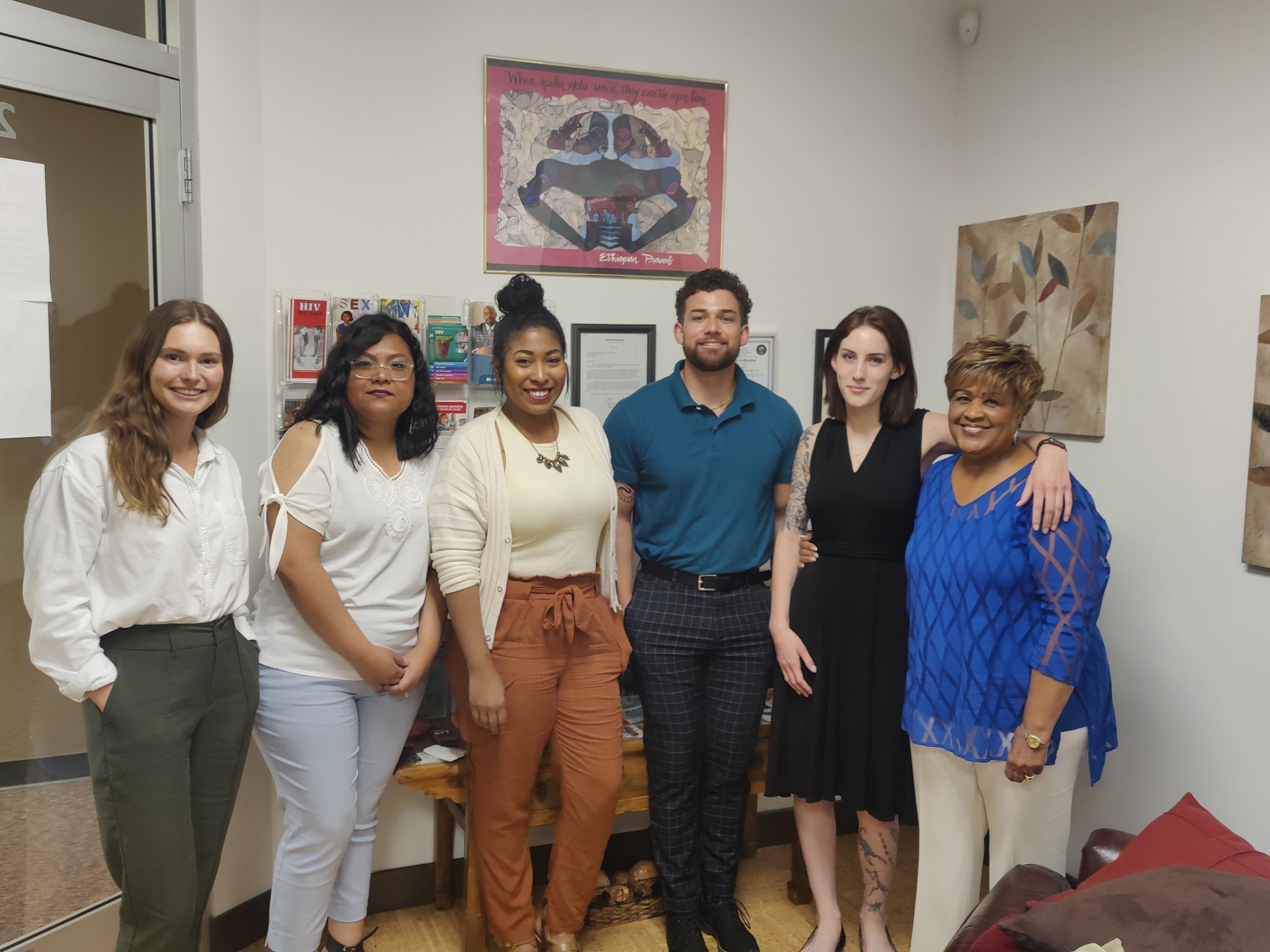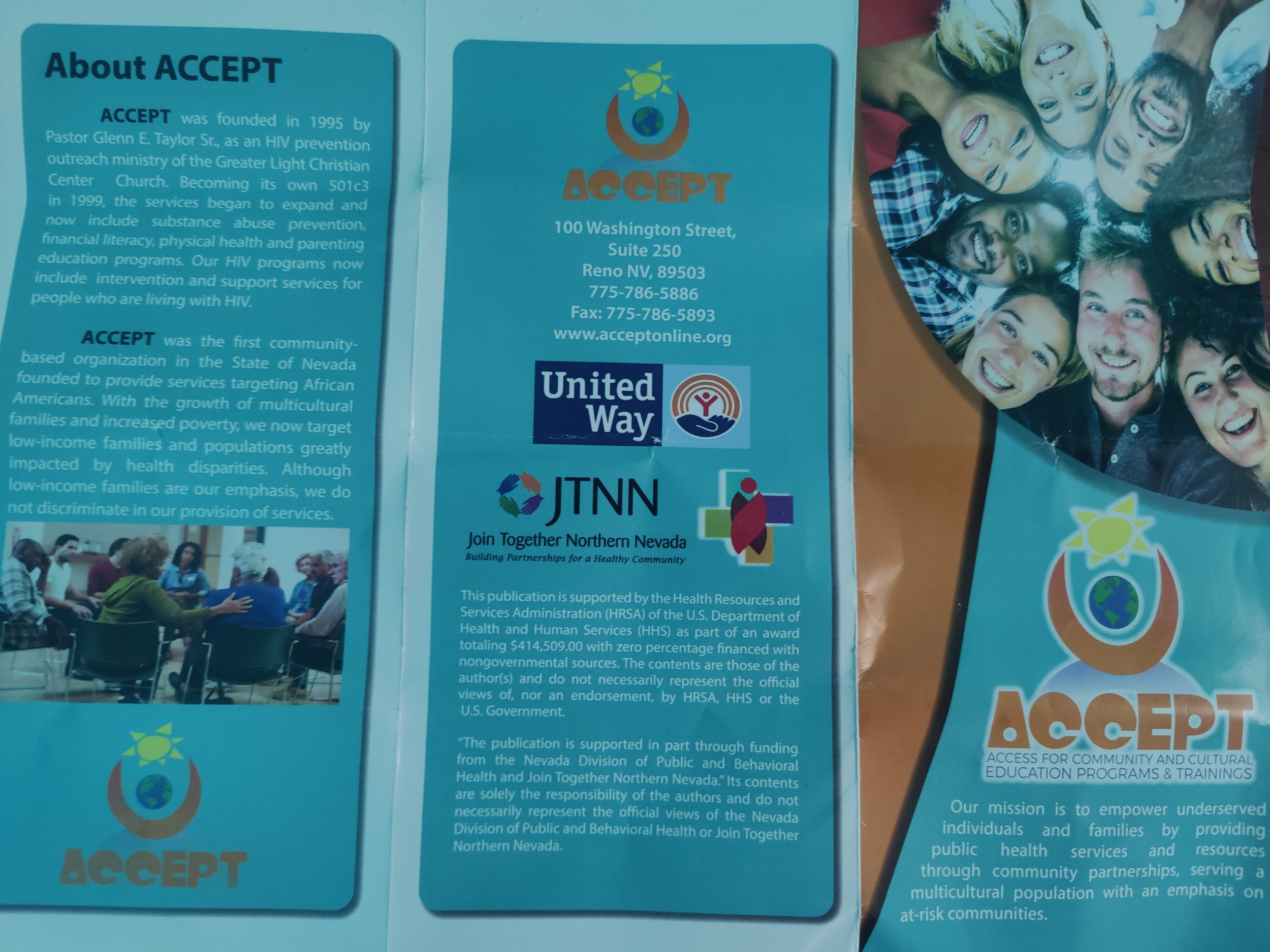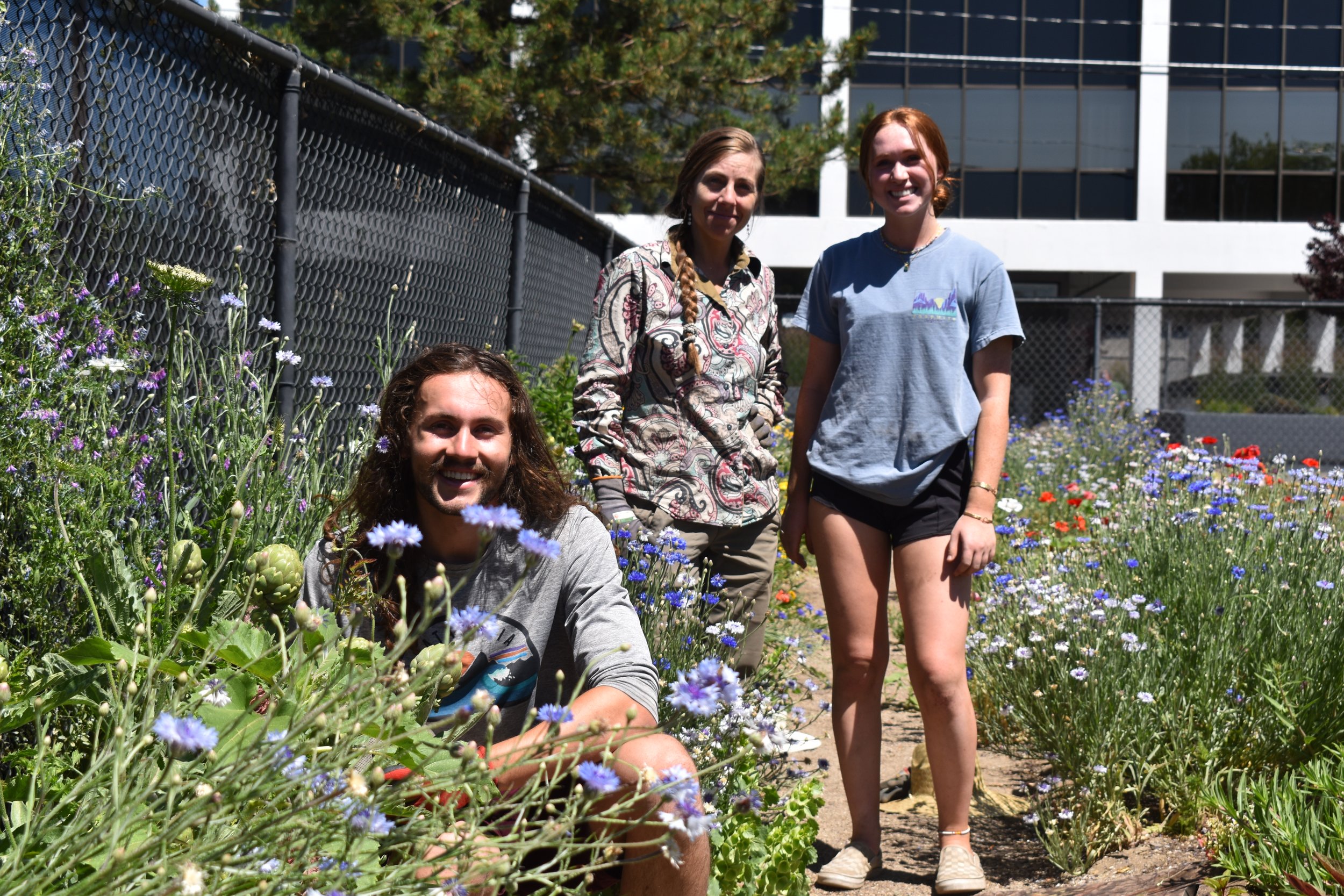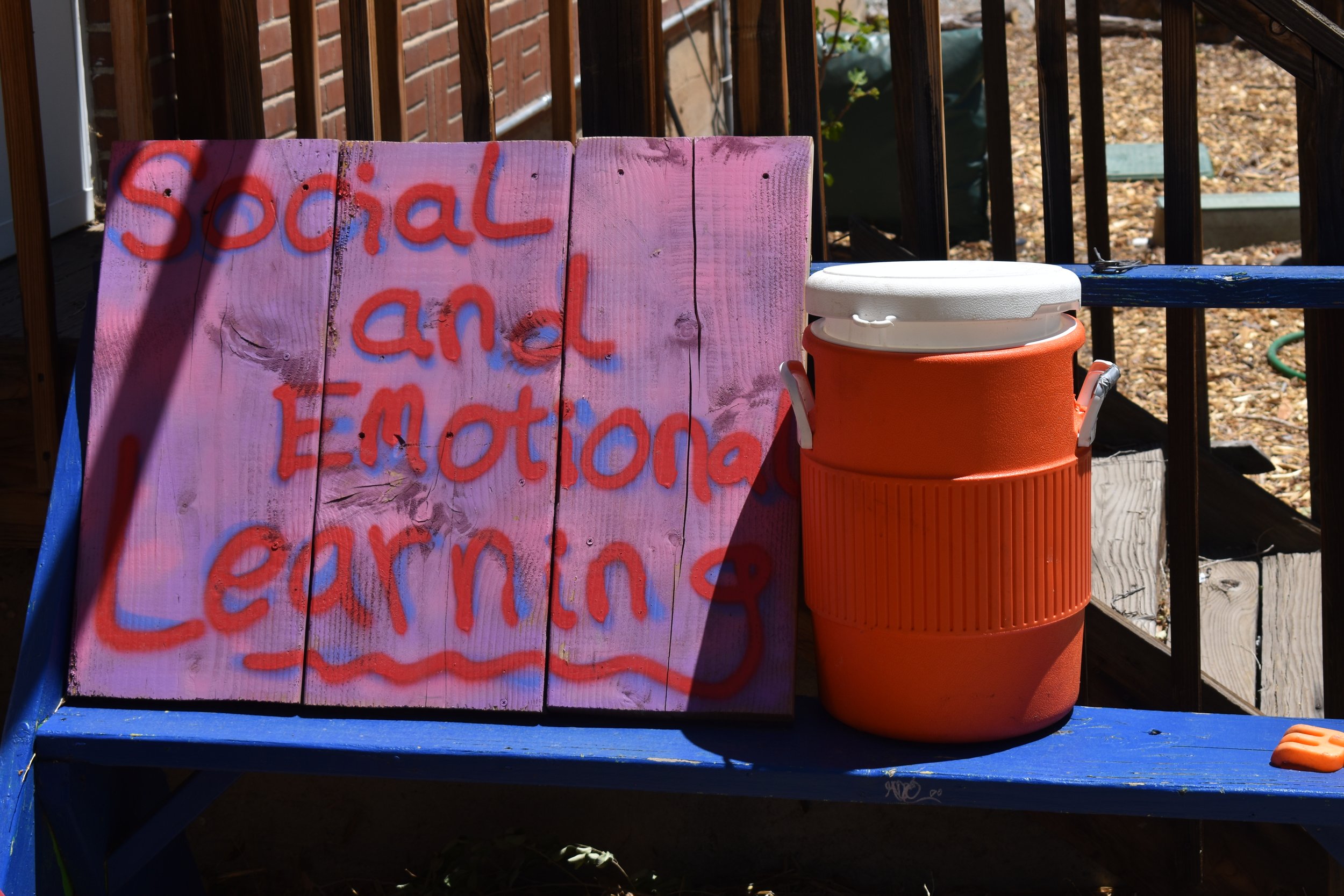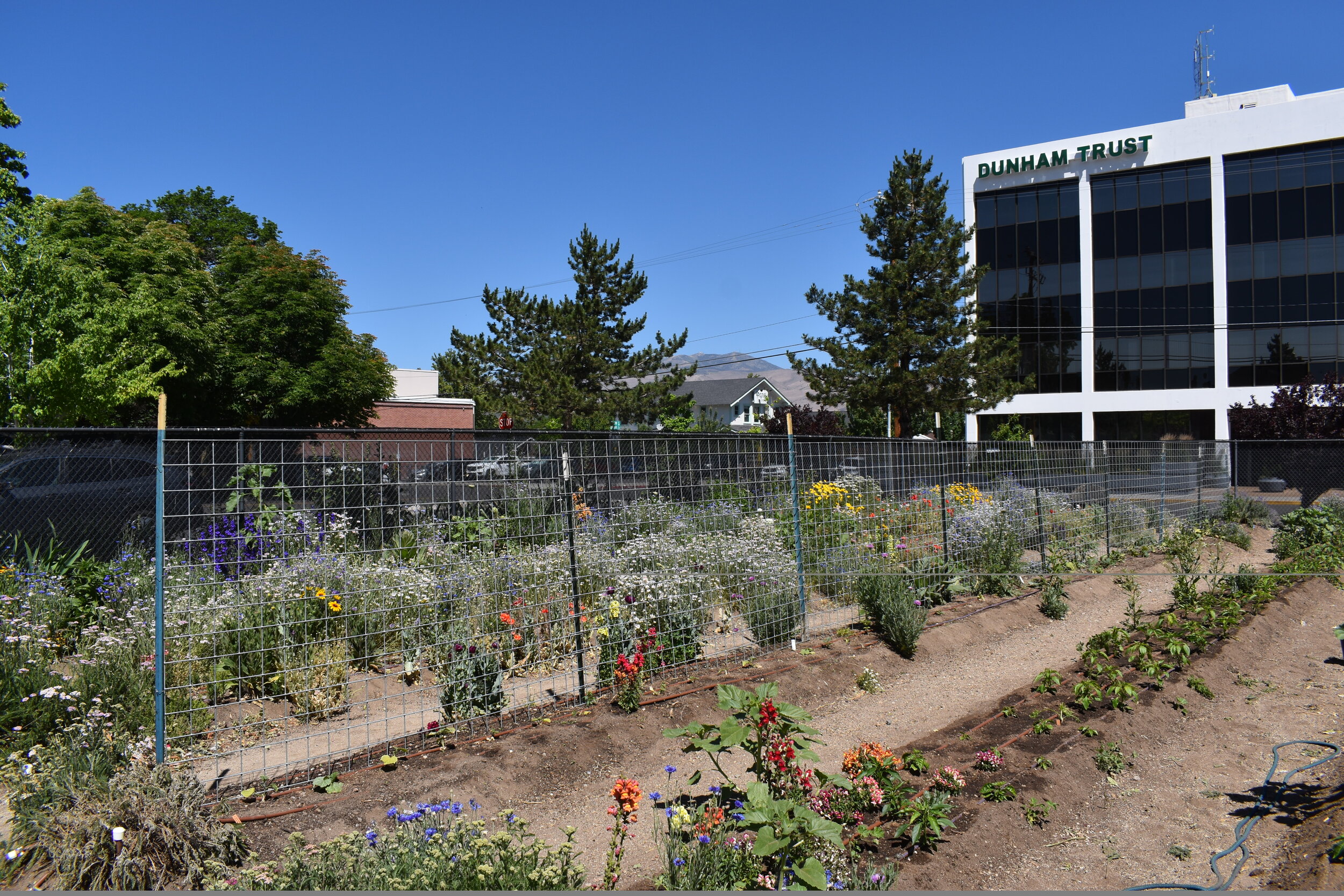Four tattoo shops in Reno, Aces Tattoo, Evolution Tattoo, Wolf City Tattoo and Lasting Dose Tattoo are running a community shoe drive, accepting donations of new shoes, clothes and underwear until August 6th to help unhoused or poorly sheltered Washoe County students, of which there are several thousand.
For Jake Griffin, a tattoo artist at Aces Tattoo, the effort is a way to help children get back some dignity.
“Your first day of school is the red carpet for kids,” Griffin said. “I remember being in school and seeing the kids that had nothing get ridiculed and mocked. It's not their fault. They’re kids, they can't afford to even buy their own wardrobe. My objective is to help as many kids as possible to avoid that scrutiny that comes with showing up for school on your first day, and everyone's showing off their outfit, and these kids don't have anything.”
The items gathered by the Shoe Drive will benefit the Washoe County School District’s Children in Transition program. The Children in Transition program is designed to connect homeless students with any of the resources they need to succeed in their academic careers. That’s anything from backpacks and school supplies to musical instruments, and also basic clothes and shoes.
“Seeing it work, seeing your community actually care and come out of the woodwork to support these kids, I think is amazing,” Children in Transition Program Coordinator Colin Usher said. ”It's twofold. You've got that community part which brings tears to my eyes. Then, at the end of the day, it's the students that get the support they need.”
The Shoe Drive comes after a separate charity event gathering toys for children living in motels last year.
Sitting at a red light, presents for nieces and nephews filling his car, Griffin looked across the street and saw kids playing at a motel with a soccer ball and sticks, still having the time of their lives. Thinking the kids deserved just as much as anyone else, an idea for a charity drive brewed in his mind for a few years until he mentioned the idea to his fiancée and fellow organizer, Grace Tecson. The motel drive gathering presents for children came to a sudden fruition, and the support from the community for this event was overwhelming to the point Griffin was left with leftover toys and backpacks.
This is when the partnership between the Washoe County School District and the tattoo shops was born. Fielding calls from parents looking for help on a daily basis according to Usher, the Children in Transition program could help distribute the presents and goods that the tattoo shops collected.
“Community partnerships are really important and each one contributes something different,” Usher said. “For them to come up with an idea for shoes and socks is great because a lot of organizations don't think about that sort of specific thing. You're gonna set them up first day of school looking good, feeling good, not so much standing out, but just blending in which a lot of these kids need.”
According to Usher, the Washoe County School District identified over two thousand Washoe County students as in transition last year. Factors involving the COVID-19 pandemic and the potential for children in transition to remain unidentified mean that the real number is likely even higher.
“Oftentimes it's just inadequate housing,” Usher said. “It could be that they're doubled up with their aunt or uncle or grandmother or grandfather or another family. Some of them are unaccompanied youth, so they don't have a guardian or that adult in their life and they're living with another family, couch surfing essentially.”
Working at a tattoo shop, Griffin said he sees people from all walks of life, from bikers to lawyers, come through his doors. Aces Tattoo has good relationships with other nearby shops, who agreed quickly to the idea of the Shoe Drive. The main goal is always the children, but the Shoe Drive is also an opportunity to show people that the stigma around tattoo shops doesn’t match up with reality.
“Our shop has been open 27 years,” Griffin said. “Before all this gentrification and before this neighborhood was Midtown, we were here. We've never left. We try to give back as much as we can, and we just want to show people that we care about our community, just as much as anybody else, if not more.”
Only new items will be accepted as donations. Shoe sizes from 5T to 14Y are being accepted, and the shops are taking donations until August 6th. Anyone who donates will be entered into a raffle, with first place earning a $500 gift certificate, second place a $250 gift certificate and third place eligible to earn merchandise from the shops. Raffle tickets can also be purchased at a price of $20.
“We need as much help from the community as possible,” Griffin said. “Whether it be a simple pair of socks, underwear, five bucks from your pocket, 10 bucks or a $20 pair of shoes. People spend that in an iced tea at Starbucks, you know what I mean? Six bucks can make a difference in the kid's life, not just that day.”
Our Town Reno reporting by Jesse Stone
